THIS CRAZY DAY IN 1972: Rock 'em Sock 'em Politicos, Round One
The Great 1972 Cook County State's Attorney Race
To access all website contents, click HERE.
Why do we run this separate item peeking into newspapers from 1972? Because 1972 is part of the ancient times when everybody read a paper. Everybody, everybody, everybody. Even kids. So Steve Bertolucci, the 10-year-old hero of the novel serialized at this Substack, read the paper too—sometimes just to have something to do. These are some of the stories he read.
The 1972 race for Cook County State’s Attorney is a gloves-off, below-the-belt political fight in three rounds: the slating, the primary, and the general election.
Older Readers know who finally gets KO’d, but even faithful TCD1972 followers will take some punches they didn’t see coming in this expanded look at the bout.
That said, if you don’t feel like politics this week, try this Chicago History Rabbit Hole where we dove into the storied and delicious Ashkenaz Restaurant on West Morse. It was very filling. Now we return to our regularly scheduled politics.
The 1972 race for Cook County State’s Attorney is about a seismic political shift in Chicago’s Black community, a crucial prelude to Harold Washington’s 1983 election as the city’s first Black mayor.
That means it’s also about Mayor Daley’s hold on power. Is he finally losing it? Where goeth Mayor Daley, so goeth Chicago’s vaunted Democratic Machine. The Machine has been humming along since Mayor Anton Cermak’s election in 1931. Few people in 1972 truly recall Chicago before the Machine.
Mayor Daley has been in office since 1955. An entire generation of Chicagoans have never known any other mayor.
The 1960s were not easy for Mayor Daley.
But 1972 is truly Mayor Daley’s terrible, horrible, no good, very bad year.

First, Mayor Daley will face rebellions over his political decisions in this State’s Attorney race from three directions: the Black community; other major Democratic office holders and candidates; and unclear but significant numbers of his own political soldiers. These battles will rage all the way to Election Day in November 1972, but they actually begin in December 1971 with the Democratic Machine’s deliberations and announcement on which candidates it will “slate,” meaning “support,” for the coming March 1972 primary election. Specifically, who the Machine will slate for Cook County State’s Attorney.
And that’s not all.
…and lead another Black community fight against him over general police brutality in Black neighborhoods.
Finally, Daley will battle the younger, liberal and diverse elements rising in the Democratic Party. Ald. Bill Singer and Rev. Jesse Jackson will lead a group that successfully challenges Daley’s elected Machine delegates to the Democratic National Convention in July, taking the Machine seats at the Miami gathering. [See “Mighty Daley has struck out” for more.]

But it all starts with the race for Cook County State’s Attorney. We’ll assume everybody knows Mayor Daley. Now let’s meet the other biggest contenders in this fight campaign. Two more surprise pugilists will pop up later.
Contents
It’s long! Here are sections to check out if you prefer to skip around. And to skip this and read on, click here.
In this corner…
Edward V. Hanrahan
Edward V. Hanrahan is 51 in 1972, either headed to jail or a second term as Cook County State’s Attorney. If the latter, many think his next stop could be the fifth floor of City Hall as Mayor Daley’s successor.
The one sure thing about Hanrahan: He has a real temper on him.
OK, two sure things: He loathes Chicago Daily News star columnist Mike Royko, and the press in general. We’ll see Mike Royko tangle with Hanrahan several times in this campaign, including one Royko column that must have made Hanrahan’s head explode.

Hanrahan moved to Chicago as a child, living in a West Side apartment only a few blocks from the Black Panther apartment at 2337 W. Monroe which would be raided just before dawn in 1969 by police attached to his office, killing Panthers Fred Hampton and Mark Clark and leading to Hanrahan’s current indictment in our 1972 timeline.
Perhaps young Hanrahan walked by 2337 W. Monroe, naturally having no idea that future events on that spot would completely change the course of his life and Chicago politics.

After attending Our Lady of Sorrows and then St. Philip High School, Hanrahan got an undergrad degree in accounting from Notre Dame, served in the U.S. Army Signal Corps in intelligence during World War II, and finally graduated from Harvard law school.
Mayor Daley backed Hanrahan for a stint as U.S. Attorney for the Northern District in 1964, and then for Cook County State’s Attorney in 1968. Mayor Daley is Hanrahan’s coach and cutman, the guy in Hanrahan’s corner.
Hanrahan and 13 co-defendants (one assistant State’s Attorney, 12 cops) are now under indictment by a special grand jury for conspiracy to obstruct the investigation of the 1969 Black Panther raid.
And in this corner…
Bernard Carey
Bernard Carey was a South Side kid who grew up at 9357 S. Throop in Brainerd, just north of Roseland, where his parents still live in our 1972 timeline. Carey’s father is principal of Jones Commercial High School, now Jones College Prep.
Could Bernard Carey become the first Republican State’s Attorney since Ben Adamowski’s single 1956-1960 term—and before Adamowski, the first Republican since 1928?
Carey attended Mayor Daley’s parochial high school alma mater, De La Salle Institute, then St. Mary’s University in Minnesota, and graduated from DePaul’s law school. He’s 38 in 1972, living with his wife and children in south suburban South Holland.
A former FBI special agent, Carey currently works in special investigations for Illinois Attorney General William Scott. He’s also been a Cook County undersheriff, and he organized the Illinois Bureau of Investigation in 1969. Two years ago, Carey ran for sheriff and nearly beat Democrat Richard Elrod. Carey lost by fewer than 10,000 votes. The vote fraud charges in that race will never die.
And in yet another corner….
Fred Hampton and the 1969 State’s Attorney police raid
Though not on any ballot, Fred Hampton and the 1969 State’s Attorney police raid that killed him at age 21 are as much a part of the 1972 State’s Attorney election as the voting machines.
The story of Hampton, the Chicago Black Panthers and the deadly raid is a complicated one. Books have been written, such as “The Assassination of Fred Hampton: How the FBI and the Chicago Police Murdered a Black Panther,” by Jeffrey Haas, Hampton’s attorney from the People’s Law Office.
We don’t have room for a book here. So I’ll give a thumbnail sketch of basic facts from some generally reliable sources, without trying to definitively pin down the most contentious questions.
Raised in Maywood, Fred Hampton started a high school chapter of the NAACP, then either participated in or led a series of protests and rallies demanding Maywood build an integrated public pool, depending on the source.
“At one rally, when store windows were broken and a shed set on fire, protesters clashed with local police,” according to Encyclopedia Brittanica. “Who was responsible for the damage remains unclear, but Hampton and 17 others were charged with disorderly conduct and mob action.”
Another summary of that time period, from legendary Tribune reporter Ron Grossman’s 2014 Flashback on the 1969 raid: “Over the next year, [Hampton] was associated with a school disturbance, the beating of an ice cream truck driver and a demonstration at Maywood Village Hall that ended with the mayor and other officials fleeing the building, tear gas being fired and plenty of glass broken.”
Some sources, and certainly Hampton’s lawyers, call the ice cream truck incident a “trumped up charge,” as a Smithsonian Magazine look at the film “Judas and the Black Messiah” put it.
Hampton left the nonviolent NAACP and joined the Black Panthers, founded in Oakland by Huey P. Newton and Bobby Seale in late 1966. “By December 1969, [Hampton] was the Illinois chief of the Black Panther Party, which preached violence as the means to African-Americans' liberation,” writes Grossman.
Per Smithsonian, the U.S. government began its first school breakfast program in 1966, the year the Panthers formed. Many believe the federal free breakfast program expanded because the Panthers started their own breakfast program in Black communities.
Again per Smithsonian, in addition to running a Chicago breakfast program, “Hampton spearheaded the Rainbow Coalition, a boundary-crossing alliance between the Panthers, the Latino Young Lords, and the Young Patriots, a group of working-class white Southerners. He also brokered peace between rival Chicago gangs, encouraging them ‘to focus instead on the true enemy—the government and the police,’ whom the Panthers referred to as ‘pigs,’ according to the Village Free Press.”
Meanwhile, FBI director J. Edgar Hoover was obsessed with the Panthers. About six months before the Chicago raid, Hoover famously declared that the Black Panthers represented “the greatest threat to internal security of the country.”
Hoover had created the FBI’s COINTELPRO program in 1956 to infiltrate radical groups, “ranging from the Communist Party…to the Ku Klux Klan,” per Smithsonian, later going after the Civil Rights movement and then the Panthers. The FBI, via COINTELPRO, “was present at the scene of the Chicago Black Panthers’ foundation,” as Brittanica puts it, “in the person of informant William O’Neal, an African American teenager who, a few months earlier, had stolen a car, driven it under the influence of alcohol, and crashed it.”
“In the months leading up to the raid,” writes Grossman, “Black Panther members were involved in two fiery gunbattles with Chicago police. The causes of the incidents were disputed, but in a July shootout, five police officers and three Black Panther members were wounded at the party's headquarters a block north of Hampton's apartment. In November, two police officers were killed and six were wounded in a South Side fight with Black Panther members, who themselves suffered one death and one injury. It was war, and a spy [William O’Neal] had infiltrated the Panthers' ranks.”
FBI informant O’Neal became the Chicago Panthers’ security director. His FBI handlers asked him for a sketch of the Panther apartment at 2337 W. Monroe. O’Neal gave them a map showing the location of weapons and people, including Fred Hampton’s bedroom. The FBI gave that information to Hanrahan’s office.
As a 2019 Tribune article by William Lee recounts, FBI agent and whistleblower M. Wesley Swearingen claimed in 1977 “first to government lawyers and later in a 1995 book that the FBI set up Chicago police to kill the Panthers, warning the officers they’d be met with guns blazing.”
On December 4, 1969, just before 5 a.m., police assigned to Hanrahan's office raided the apartment. When it was over after nearly 100 shots fired, Fred Hampton and fellow Panther Mark Clark were dead. Four other Panthers were wounded.
What really happened? Was it an intentional planned assassination by the FBI and/or Chicago police; a raid gone horribly wrong due to FBI machinations and the recent violent history between CPD and the Panthers; or some hybrid?
Attorney Flint Taylor of the People’s Law Office “rejected any suggestions that Chicago police were anything except ‘willing partners,’ in the slayings,” writes the Tribune’s Lee. “‘They weren’t duped into this raid,’ Taylor said. ‘It wasn’t just a shooting ... it was a political assassination that came from Washington and the COINTEL program and J. Edgar Hoover.’”
A few points we can say for sure:
Fred Hampton was shot while lying in bed with his common-law pregnant wife Deborah Johnson, later known as Akua Njeri.
Njeri said she tried and failed to wake Hampton when the raid started. She also said that after police removed her from the bedroom, she heard two shots fired, and a policeman say, “He’s good and dead now.”
FBI informant William O’Neal denied drugging Hampton. Per Encyclopedia Brittanica, “two initial toxicology tests found no barbiturates in his system. However, an independent autopsy subsequently revealed a dangerous amount of barbiturates in his bloodstream.” The Smithsonian article says Hampton was “allegedly” drugged. Attorney Jeffrey Haas believed Hampton was definitely drugged, and that O’Neal had done it.
The initial federal grand jury investigation determined that out of 76 gun shells, only one had been fired by the Panthers—though that finding was disputed during the 1972 trial, and other accounts will speak of closer to 100 shots and shells.
The federal grand jury report blasted every level of the raid’s planning and execution; the surviving Black Panthers for not cooperating with the investigations; and the initial press coverage. The Chicago Journalism Review, a fantastic but short-lived monthly publication begun by local reporters disgusted with coverage of Chicago’s 1968 Democratic National Convention, devoted an entire issue to analyzing the Panther raid coverage, with an astonishing cover by Pulitzer-prize winning Sun-Times editorial cartoonist Bill Mauldin:
There were four separate official investigations of the raid before Hanrahan and his 13 co-defendants were finally indicted by the Cook County grand jury led by special prosecutor Barnabas Sears. The indictments came down in June 1971, and then all over again in August 1971. Don’t even ask, it’s complicated.
Hanrahan et al were indicted not for the raid itself, but for conspiracy to obstruct the investigation of the raid.
In December 1971, as our story here begins, Hanrahan has refused to step down from his office as State’s Attorney, or take himself out of the running for re-election, as he seeks to have the indictments thrown out of court. He insists the indictments are illegitimate, because
1) Nobody was indicted for the raid itself, therefore Hanrahan claims there was no crime; and
2) How can you conspire to obstruct the investigation into something that wasn’t a crime?
You can read more about the 1969 raid and its aftermath at the People’s Law Office website from the POV of the attorneys who represented the Panthers.
The raid survivors and the Hampton and Clark families won a $1.8 million civil settlement, a case that took 13 years. As for William O’Neal, Grossman writes that he “moved around the country under assumed names, fearing reprisals for his role in Hampton's death, though he denied having guilty feelings. In 1990… O'Neal ran onto the Eisenhower Expressway and was fatally stuck by a car. The medical examiner ruled it a suicide.”
I’ll throw in a smattering of non-political treats as we go along, such as Chicago Today’s “Smilie.” In 1971, the Smilie explanation below runs daily in Today, usually next to the index at the bottom of page 2. Smilie pops up randomly elsewhere in the paper featuring incredibly corny reasons for his smile, sent in by readers. Smilie’s appearances gradually fade away as 1972 progresses, but he’s going strong in December 1971.
Who gets to fight for the Machine?
It’s the one burning question on all political lips. Who will run in the 1972 primary with the official backing of the Cook County Democratic Party?
The Cook County Democratic Party, btw, is run by Mayor Daley and its Central Committee, made up of the 80 Democratic committeeman, one from each of Chicago’s wards and each of the county’s townships.
As we open, the Central Committee’s slating group is about to begin meeting to choose candidates at their headquarters in the Sherman House hotel. These are their “slate-making sessions,” in which everyone who wants the Machine’s backing in the 1972 primary appears before the committee and auditions.
Chicago Today
by Mark Clark
Downstate leaders met in Springfield on December 1 for statewide candidates to audition there, “saving their final decisions for the all important nod from Mayor Daley” at the Sherman House, as reported by Chicago Today.
The big speculation in Springfield is whether Daley has decided to push Lt. Gov. Paul Simon toward a promotion to governor. But at the Sherman House, the audition everybody’s waiting for is Ed Hanrahan.
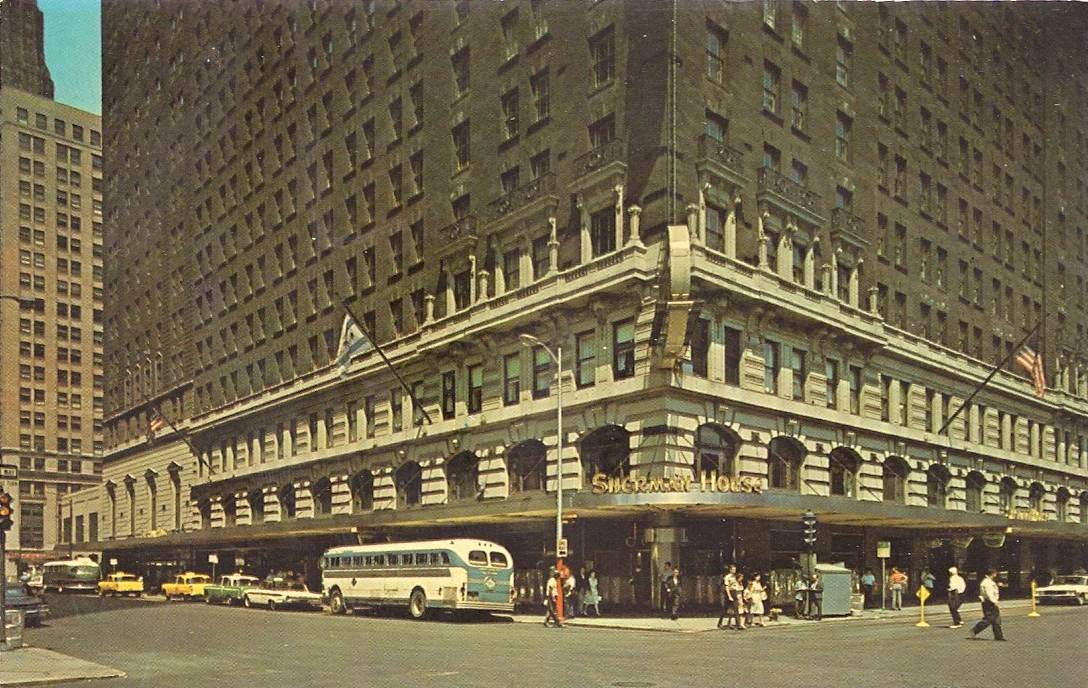
As the location of Mayor Daley’s Democratic headquarters alone, the Sherman House looms large in 20th century Chicago history. Above, you see Sherman House from the northeast corner of Randolph and Clark, right across the street from City Hall, which is out of the frame on the lefthand side. Sherman House will close just a year after these events, in 1973.
By 1980, the entire block will be demolished to make way for Helmut Jahn’s State of Illinois Building—later renamed the James R. Thompson Center, after the man who is U.S. Attorney for the Northern District in 1972. Thompson will become governor of Illinois in 1977. Below, the same northeast corner of Randolph and Clark in 2021 via Google Streetview.
Chicago Daily News
by Henry Hanson
The Cook County Republican Party has reportedly promised Bernard Carey at least $100,000 for his campaign—that’s almost $7 million in 2022 money—and Carey has officially agreed to run.
“He promptly denounced Democratic incumbent Edward V. Hanrahan,” writes the Daily News’ Henry Hanson. Carey declared that if he is elected, “blaming the press, judges and juries will no longer serve as a substitute for law enforcement.”
Chicago Daily News
by Charles Nicodemus
“The failure of leading Democrats to defend State’s Atty. Edward Hanrahan against a scathing attack before party slatemakers has sparked fresh speculation that Hanrahan may not be slated for re-election,” writes Charles Nicodemus, Daily News political editor.
“The blistering criticism was presented to the Democratic Central committee’s slating group by the chairman of the Independent Voters of Illinois, Michael Shakman, who urged that Hanrahan be dumped.”
Nicodemus describes Shakman as the “diminutive” and “soft-spoken” guy “who has successfully sued in Federal Court here to force the reform—and eventual abolition—of the patronage system, the foundation of Daley’s organization.” Meaning the Machine.
Surprise: The liberal do-gooder IVI backed Hanrahan for his first run in 1968! Nicodemus reports that IVI is becoming “increasingly influential.”
In addition, “an increasing number of Democratic ward and township committeemen are privately warning Daley that the party will risk losing the all-important state’s attorney post if Hanrahan is reslated.” Not just Black city committeemen—some white suburban ones too.
Shakman’s attack “upon an incumbent officeholder, to the ‘elders’ of the party assembled as slatemakers, is without precedent in local Democratic affairs,” writes Nicodemus. “Equally surprising was the refusal of any of the prestigious—and usually combative—Democratic leaders, including Mayor Richard J. Daley, to rise to Hanrahan’s defense or to offer even one word in opposition to Shakman’s criticisms.”
Chicago Today
Chicago Daily News: Lu Palmer
In his weekly op-ed column, Daily News reporter/columnist Lu Palmer quickly reviews the facts of the State’s Attorney police raid on “an apartment in Chicago’s West Side ghetto” exactly two years earlier, and the subsequent grand jury investigation and indictment of Hanrahan and 13 codefendants.
“Two men have emerged as the central figures in the drama that has unfolded since the raid—Hampton and State’s atty. Edward V. Hanrahan,” writes Palmer. “The differences in these two men illuminate the depths to which the American system has sunk.”
…. “The major difference between Hampton and Hanrahan is that Chairman Fred is dead. Hanrahan is not only alive but is looking forward to being re-elected.
“Large segments of the black community in Chicago believe fervently that Hampton and Clark were deliberately killed by the raiding party.”
Hampton started out with the NAACP, notes Palmer. “Hampton did not become a revolutionary overnight….But Hampton was not only young and brilliant, he was also restless and impatient like so many black youths. And so he did, as he once told me, ‘what I had to do.’ He became a Black Panther.”
“Shortly before he was killed, he spoke at a memorial for John and Michael Soto, two black brothers killed by police in separate incidents. ‘I often wonder what I would be, if I had been born free,’ he said at the time.
“One thing Chairman Fred—and many other blacks like him—would be if they had been born free is alive.”
In contrast, Palmer writes, Hanrahan expects to run for re-election, and Palmer says most people don’t believe Daley will dump him.
Hanrahan contends his indictment for allegedly conspiring to obstruct the investigation of the raid should be thrown out since no one was charged with a crime.
“And so [Hanrahan] asks: “Conspiracy to obstruct the prosecution of what?”
Hanrahan could get the answer from the Black community, Palmer concludes:
“It’s a one word answer and it tells a world.
“The word is murder.”
Paul Simon and his slightly soiled bow tie
We could skip this but it’s too fun.
Illinois Democratic party leaders announce the statewide slated primary candidates on Monday, December 6, after the hopefuls have also appeared before Mayor Daley’s committee, and Mayor Daley has made up his mind. Mayor Daley gave the nod to Lt. Gov. Paul Simon to run for governor.
Simon is famously independent and as clean-cut as his bow tie. Older Readers will remember Paul Simon as their (famously) liberal and ethical U.S. Senator, 1985-1997. As Chicago Today puts it today: “He championed ethics legislation, each year publishing his income, and prodded the legislature to police itself closely, efforts which won him the Independent Voters of Illinois Best Legislator award seven times and some of his fellow legislators’ contempt.”
Tomorrow, Mike Royko will describe Simon’s audition at the secret slatemaking sessions. When Paul Simon finished his pitch to Mayor Daley and the slatemakers, only one person spoke—Mayor Daley’s “top Pole,” as Mike puts it, County Commissioner and 26th Ward Committeeman Matt Bieszczat, who started his political career working on a city garbage truck.
“Daley trusts him because in all of Bieszczat’s years, he never once opened his mouth about a friend,” writes Mike. “He wouldn’t even open his mouth about an enemy.
“Which is why he still had doubts about the boyish, bow-tied Paul Simon, who wanted Bieszczat’s backing for governor.”
With Simon standing there in front of the room, Bieszczat got up and read detailed passages from a 1965 article in Harper’s by then-State Senator Paul Simon, “as told to Alfred Balk,” which per Mike “told of payoffs by lobbyists, profiteering in racetrack stock, the political muscle of the crime syndicate, and other juicy subjects.”
“When [Bieszczat] finished reading, he looked at Simon and asked:
“‘Did you say that?’
“Simon didn’t hesitate.
“‘I was misquoted,’ he said.
“Bieszczat nodded. That settled the matter. To be misquoted means you didn't say it. If you didn’t say it, you couldn’t mean it. You don’t believe it.”
Later, Mike called Alfred Balk to make sure Paul Simon had read the Harper’s article before it was printed with his byline.
“I’m sure of it,” Balk told Mike.
Hanrahan’s Audition
But Paul Simon is not the main Chicago event.
At Sherman House, they save the most important for last: Hanrahan auditions on Monday, December 6. As the committee debates Hanrahan into the afternoon on Tuesday, the Daily News plays it safe in its December 7 headline. Chicago Today calls it in the headline but waffles in the reporting.
by Charles Nicodemus
“Lavish praise from 17 top Democrats in speeches during the party’s secret slating talks made clear Tuesday that Mayor Richard J. Daley plans to tap State’s Atty. Edward V. Hanrahan to run for a second term.
“The plaudits for the controversial prosecutor came after the fiery Hanrahan spent 20 minutes before the slatemakers in the Sherman House Monday, seeking their endorsement.
“After Hanrahan departed to a standing ovation, U.S. Rep. Roman Pucinski, the 41st Ward committeeman slated as the party’s candidate for the U.S. Senate, told the Cook County Central Committee’s slating subcommittee:
“‘I would be proud to be on the ticket with Ed Hanrahan. I believe he’d be an asset to the ticket.”
Then:
“Black leaders from the West Side area, where two Black Panther Party officers were killed in a 1969 raid by Hanrahan’s police, told the slatemakers that ‘the people in our area are behind Ed Hanrahan.’
“Ald. Claude B. Holman (4th), the City Council’s most bombastic black orator, told the group:
“‘Don’t be concerned about the attitudes of those black militants. They don’t represent the community, anyway. They’d support any Republican opponent of Ed Hanrahan’s, no matter what. So just forget about them.
“‘Blacks want law and order, as much as any group.
“‘And they are confident Ed Hanrahan believes in law and order.’”
FWIW, the 4th Ward is not on the West Side, then or now. It has been a firmly South Side ward since at least 1857.
Rev. Jesse Jackson came to the Sherman House with a different message for Mayor Daley and reporters.
Jesse Jackson: Mini-Profile
Jesse Jackson is easily the highest-profile civil rights leader in 1972 Chicago. Originally from Greenville, South Carolina, Jackson started participating in civil rights actions during college at North Carolina A&T, a HBCU in Greensboro. He came to Chicago in 1964 as a student at the Chicago Theological Seminary, but left for full-time civil rights work a few classes shy of his degree.
Jackson began working with Dr. Martin Luther King Jr. after participating in the 1965 Selma to Montgomery marches. King chose Jackson to found the Chicago chapter of Operation Breadbasket, the “economic branch” of King’s Southern Christian Leadership Council (SCLC).
In our timeline here, Jackson has just been suspended with pay for 60 days from his Breadbasket position by King’s successor, SCLC chairman Ralph Abernathy. Abernathy said Jackson had improperly set up two nonprofit corporations to run a 1971 Black Business Expo in Chicago without notifying the SCLC. Everybody knows it’s really a power struggle between low-key, fading Abernathy and dynamic comer Jackson. Jackson will quit Breadbasket within days and establish Operation PUSH. So he has a lot going on without adding on Hanrahan.
Still, on Tuesday morning, December 7, before the Central Committee’s slating group met to make its final choices, Jackson met privately with Mayor Daley in his inner office for a reported 20 minutes.
Back to Charles Nicodemus:
“After his huddle with Daley, Mr. Jackson told reporters he told the mayor that if Hanrahan was reslated, he would devote his full time to heading a citizens committee that would work to defeat Hanrahan.
“Mr. Jackson said he also told Daley that Hanrahan would be ‘a millstone around the Democratic Party’s neck’ and would ‘provide a bridge into the black community that Republicans could run across.’”
“Mr. Jackson, in explaining what he said was opposition to Hanrahan among blacks, said, ‘Hanrahan has only been indicted for obstructing justice, but what he obstructed was another man’s life—and I call that murder.’”
by Joel Weisman
Political Editor
“Claiming an ‘unbeatable defense’ to charges stemming from the Black Panther raid, embattled State’s Atty. Edward V. Hanrahan has apparently convinced Democratic slatemakers to permit him to run for a second turn,” writes Today’s Joel Weisman.
“His emotional speech—which dwelled on the theme of loyalty—was applauded by slatemakers, who were virtually certain to recommend his candidacy later today.
“‘Your endorsement is worth more than that of all the newspapers combined,’ Hanrahan told slatemakers, according to one committeeman present at the meeting. ‘I prize it highly.’”
….“He explained his ‘legal problems’ arose because of his loyalty to his assistants and policemen who carried out ‘a very dangerous mission—which most of you in this room would probably not be willing to undertake.’”
Weissman includes a long list of all the committeemen who spoke for Hanrahan.
“The only committeeman to dissent was Lynn Williams of New Trier Township. He suggested Hanrahan step aside until after the charges against him had been proven or dropped.”
Lynn Williams: Mini-Profile
Does that shock you? Elsewhere in all the Hanrahan coverage, the spoken or implied assumption is that all suburbanites are both white and favor any shooting done in the general direction of Black Panthers. You might think that goes double in wealthy North Shore suburbs.
But Lynn Williams is no ordinary suburban committeeman.
Lynn Williams was surely the only member of Mayor Daley’s Central Committee who competed in the Mackinac yacht race—28 in all, including the year before he died at 76. Williams didn’t just race the Mackinac. He won four times, including the 1970 race in the headline above, when actually 81 out of 165 boats were forced out by the wicked weather.
Per a later account of that 1970 race, “Many [boats] were forced ashore with tattered sails and broken spars, swamped and taking water…The winds had reached 70 miles an hour, and rollers were breaking 20 feet above the decks”. Williams beat Ted Turner, rich and famous ocean yachtsman who would go on to found CNN, by nearly an hour.
Lynn Williams was a wealthy Winnetka businessman who went to Harvard, then Yale Law School, and also did graduate work at MIT per his 1985 Tribune obituary—which explains how he was both an attorney working for various engineering firms, and also held many patents in his own name.
From Kenan Heise’s Trib obituary: “In 1959, when he was president of Anocut Engineering Co., he developed a process for machining the high-strength metals used in missiles and jet engines. The Soviets had displayed a highly touted procedure earlier. Anocut`s concept worked by reversing the electroplating process and was 60 times faster than the Soviets. He also invented a kind of bicycle brake.”
Williams ran as an independent Democrat for New Trier’s Democratic committeeman in 1966, beat Mayor Daley’s guy, and stuck around for just over ten years making trouble.
In 1968, he supported Sen. Eugene McCarthy for his anti-Vietnam War stance, but didn’t win election as a McCarthy delegate to the 1968 Democratic election. Soon after, Mayor Daley neglected to invite Williams to two Democratic Central Committee meetings in a row, reported Tribune political editor George Tagge, but Williams got wind of the second one and showed up anyway.
Here’s Mike Royko’s description of that meeting in “Boss”:
“Only once in recent years has anybody stood up and talked back, and he was one of the suburban committeemen, generally referred to around party headquarters as ‘a bunch of meatheads.’
“The suburban businessman, Lynn Williams, a wealthy manufacturer and probably the most liberal member of the Central Committee, had been angered by Daley’s attacks on liberals after the 1968 Democratic Convention. Daley had been making speeches lambasting pseudo-liberals, liberal-intellectuals, suburban liberals, suburban liberal-intellectuals, and pseudo-liberal-intellectual suburbanites. He had been shouting: ‘Who in the hell do those people think they are? Who are they to tell us how to run our party?’
“Williams…stood up, finally, at a Central Committee meeting and delivered a scathing rebuttal to Daley, saying that without liberal participation the party would be nothing but a skeleton, its only goal, power.
“As he talked, the committeemen’s heads swiveled as if they were watching a tennis game, wonder and fear on their faces. They had never heard such talk, and wondered what Chairman Daley would do. Strike him with lightning. Throw the bum out?
“When Williams finished, Daley, in a surprisingly soft voice, said, ‘I’ve always been a liberal myself.’
“Other committeemen joined in his defense, recalling countless liberal acts by Daley. One man shouted at Williams, ‘Perhaps you didn’t know, but this happens to be a very liberal outfit.’
“The shock of the committeemen at the sound of somebody criticizing Daley didn’t surprise Williams. He has said: ‘Most of them are mediocrities at best, and not every intelligent. The more successful demonstrate cunning. Most are in need of slavery—their own—and they want to follow a strong leader.’”
A few weeks after that meeting memorialized in “Boss,” Lynn Williams held a press conference and called the Machine’s patronage system “immoral, unethical and of doubtful effectiveness.” “Williams urged ‘free Democrats’ to break party discipline and support Republican Gov.-elect Richard B. Ogilvie’s plans to push anti-patronage legislation,” wrote Charles Nicodemus in the Daily News.
In 1969, when about 300 New Trier seniors left school for an anti-war march, they started “from Indian Hill Park after hearing an exhortation against the war by Lynn Williams, New Trier Twp. Democratic committeeman,” per the Daily News.
A year later, Williams helped lead an attempt to wrest control of the Cook County Democratic Committee from Mayor Daley. “If the Democratic Party is to survive in Cook County, we’ve got to throw Dick Daley out of the suburbs,” Williams told the Daily News.
It didn’t work, but Williams never gave up, as we see from his Hanrahan vote at the 1971 slating session.
Chicago Today
by Joel Weisman
“Richard M. Daley, 29, Mayor Daley’s eldest son, will follow in his father’s footsteps by running for the Illinois Senate next year, CHICAGO TODAY has learned.
“Young Daley was all but formally slated yesterday in a meeting of party leaders from the South Side’s 23d state Senate District, which includes the mayor’s Brideport home.
“The informal slating meeting was held in the mayor’s Sherman House office. Afterward, a smiling young Daley emerged and accepted congratulations from dozens of ward and township committeemen.
“‘Work hard and you’ll win,’ said a South Side committeeman.
“‘Yes, he’ll have to work very hard,’ quipped Richard’s brother, Michael, who is his partner in the law firm Daley, Reilly and Daley, 33 N. La Salle St.”
Fitz at Sherman House
Tom Fitzpatrick, the Sun-Times’ top news columnist in 1972, spent Monday at Sherman House.
Fitz’s column is often terrific, but even Older Readers may not remember him. Like Jack Mabley, star columnist at Chicago Today in our timeline here, Fitz was eclipsed by the supernova that was Mike Royko at the Daily News.
Film maker Mike Gray has produced “The Murder of Fred Hampton,” focused on the last year of Hampton’s life and the 1969 State’s Attorney police raid that killed him and fellow Black Panther Mark Clark.
“It is a film that many people talk about but few have seen because no major U.S. distributor has the courage to touch it,” writes Fitz.
Gray rented a suite at the Sherman House hotel, site of Mayor Daley’s Democratic Central Committee headquarters and its slate-making sessions for the 1972 primary.
Note: You can watch “The Murder of Fred Hampton” on Vimeo or YouTube. Here’s a trailer from YouTube, which includes a clip of Ed Hanrahan speaking at a press conference:
Back to Fitz:
“Gray believes with all his heart that Hanrahan should not be reslated,” writes Fitz. “This is what Gray did. He rented a room in the Sherman House…and arranged to hold continuous screenings of the movie for all 50 slatemakers and anyone else who wanted to see it.”
Gray sent telegrams to Mayor Daley and Hanrahan, and printed up invitations for all 50 committee members. Gray stood outside the Emerald Room, where the committee would meet, to hand out the invites as participants arrived. One minute after Gray handed out the first invite, the Sherman House security chief showed up.
The security chief told Gray he could stand in the first floor lobby, or the floor on which he’d rented a suite. But he could not stand around in front of the Emerald Room. So Gray moved to the lobby, where he intercepted many committee members.
“It was fascinating to watch the reactions of the slatemakers as they accepted the envelopes,” writes Fitz. “Without exception, they appeared anxious to flee the scene as far away from the man with the envelopes as possible.”
“Gray waited until 5 p.m. No slatemaker appeared to take advantage of the opportunity to see ‘The Murder of Fred Hampton.’
“Gray packed his equipment and headed for home.
“On the elevator he met County Board President George W. Dunne, and this is what happened next, as Gray recalled it:

“Dunne was fascinated by the movie equipment.
“‘What have you been doing?’ he said.
“‘Well,’ Gray answered, ‘as a matter of fact we’ve been showing a film called “The Murder of Fred Hampton.” I know you’re a busy man, Mr. Dunne, but I’d certainly like the opportunity to show it to you at any time and any place, at your convenience.’
“‘That’s very interesting,’ Dunne said.
“‘Well,’ Gray said, ‘when would be a convenient time and place for you?’
“Dunne shook his head from side to side.
“‘No,’ Dunne said, ‘I guess I really don’t want to see it. This thing…it’s been such a shame the whole thing ever happened.’
“Mike Gray got out of the elevator then and the hollow feeling of defeat that had been sitting in his stomach lifted. As he walked through the lobby, he realized he really hadn’t lost after all.”
Chicago Today: “All in the Family”
“Could you find out what the Orthodox Jewish TV repairman said in Yiddish to Archie Bunker [‘All in the Family’] on CBS last Saturday? Archie had been badgering the fellow because—for religious reasons—he had to get home before sundown and wouldn’t be able to immediately repair the Bunkers’ TV set.”
Younger Readers: In 1971, people didn’t just throw out their malfunctioning appliances. They got them fixed and kept them going for a good 10, 20, even 30 years. Television repairmen were in big demand. You could usually spot a TV repair van in your neighborhood any day of the week.
The letter continues:
“Archie taunted him by asking, ‘Ain’t it also against your religion to turn a business deal down?’ The young guy retorted in Yiddish and then refused to tell Archie what it meant. ‘You can be certain, tho, that I got even.’ We’re dying to know what he said. — J. ORIS”
“ACTION LINE: We hope Archie isn’t reading this, because we agree that he doesn’t deserve the satisfaction of knowing. He was got with a good one, tho: ‘You should own a mansion with a 1,000 rooms and you should have heartburn in every room.”
Actually, the exchange goes like this:
TV repairman, Mr. Levy: “I’m sorry, I just can’t go against my religion.”
Archie: “Hey, turning down business—THAT’S against your religion.”
Mayor Daley announces the official slate Tuesday afternoon in time for the Daily News Red Streak edition.
But the full story appears everywhere Wednesday.
Daily News, front page:
Some top Democrats refuse to endorse Hanrahan’s slating.
From the Daily News:
“The decision of the Democratic organization to endorse a man under criminal indictment is a mistake,” said [U.S. Rep. Abner] Mikva. “As the county’s chief law enforcement official, Mr. Hanrahan should’ve stepped aside when he was indicted….Until the charges are resolved, he ought not to be acting as State’s Attorney, let alone considered for re-election.”
“Sen. Adlai E. Stevenson III (D-Ill), in a statement issued through a representative Tuesday, said he ‘could not support for any office a man under indictment.’…. Stevenson, in announcing that he would not support Hanrahan…added:
“‘As a loyal Democrat, I will not support Mr. Hanrahan’s Republican opponent.’”
Then there’s Lt. Gov. Paul Simon, now slated by Mayor Daley to run for governor and already in 1971 as famously clean-cut as his bow ties. According to the Sun-Times, Simon “sidestepped judging Hanrahan’s fitness for the slate. He said in a prepared statement:
“‘I am neither the judge nor the jury. I hope the courts can resolve the matter as rapidly as possible….I would do a disservice to justice were I to comment before the matter is adjudicated.’”
So Simon didn’t endorse Hanrahan, but he also didn’t specifically say he wasn’t endorsing Hanrahan. That is going to help cost Simon the endorsement of the Independent Voters of Illinois (IVI) in a couple of weeks, per IVI state chairman Michael Shakman, the man who put the “Shakman” in “Shakman decree.” The IVI will back independent Democrat Dan Walker instead.
Ald. Tom Keane, considered by many the second most powerful politician in Chicago as chairman of the City Council’s Finance Committee, tells the Sun-Times that the slating subcommittee’s vote for Hanrahan was unanimous.
Perhaps he is suppressing the traumatic memory of Lynn Williams’ “no” vote.
Ald. Vito Marzullo, whose name is often preceded in news accounts with the adjective “colorful,” said he was “for Hanrahan 1,000 per cent.”
Asked for further comment, Marzullo answered: “Isn’t 1,000 percent enough?”
Chicago Tribune
by Robert Nolte
“State’s Atty. Edward Hanrahan was beaming over his reslating yesterday until he learned that his candidacy would not be supported by Sen. Stevenson [D., Ill.]
“The smile fell from Hanrahan’s face when reporters shouted the news.”
“‘I can’t believe that a fair minded Democrat would not support the Democratic ticket,’ said Hanrahan….While reporters pressed around him, Hanrahan explained he would run a campaign based on his ‘past record and performance.’
“When asked for a second time about Stevenson’s statement, Hanrahan’s face tightened and his voice grew loud:
“‘I would like to remind him [Stevenson] that an indictment is not a guilty verdict,’ he said. ‘It is not a conviction.’”
Mike Royko at Sherman House
Yesterday we heard the news report version of Jesse Jackson meeting with the real Mayor Daley. Today we hear Mike’s version.
News version: Jesse Jackson met Daley in his private office at Democratic Central Committee headquarters in the Sherman House. Jackson told reporters later that he informed Daley he’d lead a movement to defeat State’s Attorney Ed Hanrahan if the party slated him for re-election.
Mike version:
“Jerry Huppert, a North Side ward boss, glanced across the room at Jesse Jackson.
“Both men were in the outer office of Democratic Headquarters, killing time until Mayor Richard J. Daley made up the slatemakers’ minds.
“Jackson, at the moment, was telling a TV camera how he was going to lead a black political revolt if Edward Hanrahan were allowed to run again.
“Huppert listened for a moment, then he said: ‘Why don’t you go over there and ask Jackson how many write-in votes he got for mayor.’”
Note: Jesse Jackson had tried and failed to get on the ballot to run against Mayor Daley in the previous mayoral election, so he was a write-in candidate instead.
“‘I’ll save you the trouble. He got 14. He’s a heckuva power, ain’t he?’
“That was just about all Jackson got,” Mike agrees. “But Huppert didn’t mention that Jackson couldn’t get on the regular ballot because Illinois election laws are as open to nonparty members as Russia’s are.”
Mike tells us Jackson “arrived in the morning, asked to see Daley, and had been ushered right in. No other civil rights leader bothered to try.”
Mike doesn’t hesitate to criticize Jackson over other issues, so you know it impressed him that Jackson came over personally to have it out with Mayor Daley. Mike says Daley listened politely to Jackson’s threat to lead a Black voter revolt if the party slated Hanrahan.
Daley “is always polite and attentive to men like Jesse Jackson and Martin Luther King. To their face at least,” writes Mike. He tells us how, while Daley later met in his office with the slating subcommittee to finish choosing candidates, Jackson and various others (including Mike) milled around waiting outside the door.
Jackson spent the long day “repeating his threat to the TV cameras and to the Machine’s black ward bosses as they arrived.”
But Mike realizes as he hears various white politicians talk to each other that no one else knows why Jackson is there.
“Jackson’s threat made so little impact on Daley, in fact, that Daley hadn’t even bothered to tell any of the party leaders about it…He didn’t mention it once.”
Finally the door to Daley’s office opened “and the party elders tripped out, in single file,” writes Mike. “They are the tiniest, funniest looking men you have ever seen….After the first seven, I always expect to see Snow White.”
Last, Daley emerged and read the list of slated candidates as Jesse Jackson “stood on the outer fringe of the crowd of newsmen.” Daley announced Hanrahan’s slating.
Mike agrees with Jackson that it’s a slap in the face of Black voters. But, he says, from a political POV, Daley slated Hanrahan simply because he believes Hanrahan can win.
“Daley’s Negro aldermen and legislators went along with the choice, although they whined to Jackson in private that they didn’t like it,” writes Mike. “Remember, Hanrahan’s legal troubles came because his men killed a couple of Black Panthers and shot up several others. Since when is killing black militants politically unpopular in white Cook County?”
Mike says we’ll see a different Hanrahan as long as he’s under indictment. “No more wild rages, temper tantrums or making of vomiting noises at columnists he dislikes.”
I think Mike is referring to himself there.
“No more finding people guilty in the press...As Hanrahan said…about his own indictment, ‘a person is innocent until proven guilty.’”
“I’ll buy that,” Mike concludes. “And I’m still wondering what Fred Hampton and Mark Clark were guilty of. It must have been very serious for them to be sentenced to such a quick death.”
Don’t miss Mike Royko 50 Years Ago Today
Dorothy Storck at Sherman House
Chicago Today
Chicago Today’s Dorothy Storck normally has just a byline, but every once in a while they put a columnist header over her articles—and it’s a shame she wasn’t a daily columnist. This is Storck’s wonderful account of the outer room of Mayor Daley’s Sherman House headquarters on the fateful day when Ed Hanrahan was slated for re-election, and it’s every bit as good as Fitz or Royko.
If only Dorothy Storck had turned up as a daily columnist in the Trib after Today folded in 1974!
Sadly no. She left for the Philadelphia Inquirer, where she worked as a reporter and columnist for 11 years. The Tribune regularly ran Storck’s Inquirer columns in the mid ‘80s in Tempo. She next moved to London and reported for two years from across the pond before returning to Chicago in 1991, freelancing travel articles.
I’ll take a closer look at Dorothy Storck as soon as possible. Quickly: Born into a military family in 1927, she graduated from Barnard and served in the Air Force for 14 years, advancing to the rank of major, before joining the Chicago’s American staff in 1965. After Storck’s return to Chicago in ‘91, she became engaged to UIC political science professor and former [fiery independent] Ald. Dick Simpson. She died in 2015.
Storck’s sharp eye for detail and character is always striking. Here’s a fantastic Storck interview with Ald. Vito Marzullo after the 1972 Democratic Convention. And here’s her vivid, moving description of the scene at Jackson Park Hospital as surgeons tried to save the life of a young police officer shot by robbers. Plus, a little later in this post, here’s Storck’s account of Joanne Alter’s slating as the first ever county-wide Democratic female candidate.
Now, back to Sherman House:
“Jesse Jackson was slumped in a chair at the back of the room, leaning a little against the mimeograph machine.”
Younger Readers: A mimeograph machine is an ancient form of a Xerox machine. Usually mimeographs were in a purplish ink, for some reason, and no one familiar with mimeographs will forget their distinct scent, especially when they were still fresh and a little wet. It wasn’t an attractive smell, and yet, you couldn’t help sniffing to take it in. I can think of absolutely nothing to compare it with.
“Behind a door at the far side of the place the Democratic slatemakers were nominating Edward Hanrahan for reelection as Cook County state’s attorney.
“Jackson had been in to see the mayor two hours earlier to protest the nomination.
“He had talked with Congressman Ralph Metcalfe, taking him behind the coffee machine to find a little privacy in the crowded anteroom.
“Metcalfe, a former Olympic champion runner, had shaken his distinguished gray head with concern and furrowed his distinguished face. Then he had gone back thru the slatemakers’ door to vote for Edward Hanrahan.”
Next, Ald. Claude Holman exits the inner office briefly, and Jackson gets him behind the coffee machine too.
Holman “was speaking very softly and looking very apologetic, the way you look when you tell someone you’re really sorry to hear about his liver condition.
“After talking with Jackson, Holman went to the phone and made two calls, shielding his mouth with a green blotter so that nobody who might be watching could see his lips move.

“Then he went back thru the slatemakers’ door and voted for Edward Hanrahan.”
It’s obvious that Hanrahan is about to slated. Jackson tells the crowd of reporters and TV cameras that it will mean a split in the party.
“Then he took off his long leather coat, laid it carefully by the mimeograph machine and made one phone call after another for two hours from the Sherman House Democratic Committee headquarters.”
Remember Younger Readers, there are no cell phones.
Storck moves her attention to nearby U.S. Rep. Roman Pucinski, already slated to run against U.S. Sen. Charles Percy. Pucinski “was standing a little to Jackson’s left, joking with newsmen about the days when he, Roman Pucinski, was a newspaper reporter.
“It is a little hard to concentrate on Pucinski’s stories at the best of times. You keep looking at his wavy silver hair and wondering if it shines in the dark.”
“Jackson looked over at Pucinski steadily for about a minute and then looked away.”
Storck has already evoked the scene masterfully by bringing in the office machines. Now she gives us a hilarious image:
“All over the room little round men with glasses, pink jowls and rumpled suits were talking to each other….As soon as one of them went away, two more turned up as if some marvelous amoebic splitting were taking place in the corridor outside.”
Somebody asks Jesse Jackson why he’s all by himself—I’m assuming it’s Storck, avoiding using the first person:
“Where are all the others, someone wondered? The ones you see at the welfare dinners and the good citizenship meetings in Woodlawn and Lawndale, who talk about making a better life for the black people in this city?”
…. “Jackson moved his hand wearily in front of him, then let it drop at his side.
“‘They don’t understand,’ he said. ‘Next week they’ll be out there protesting and all that. But next week is not the time. We’ve got to try to do something now to stop it.’”
Chicago Today
by Joel Weisman
Weisman clarifies that Sen. Adlai Stevenson says he told Mayor Daley in advance that he wouldn’t support Hanrahan. “It was the first time in memory a party official holding such high office openly opposed the slatemakers,” writes Weisman.
Black slatemakers Ald. Claude Holman and State Sen. Cecil Partee “assured Daley they could ‘still carry most black wards’ with Hanrahan on the ticket. But Congressman Ralph Metcalfe…was not nearly as optimistic, tho he publicly predicted victory for the ticket.”
Weisman’s conclusion: “Many find this strange at a time when Daley has opened up the party’s top ticket positions to onetime mavericks like Stevenson and Simon. But there is some wisdom, from Daley’s point of view, to his potentially divisive action. His decision shows the organization still rewards loyalty with loyalty. And Hanrahan will lure many conservative Republican votes, offsetting the ones he loses from liberals, blacks and Independents.”
Chicago Daily Defender
by Robert McClory and Faith Christmas
“Black political and community leaders Wednesday labeled Edward V. Hanrahan ‘public enemy number one’ and called the Cook County Democratic Committee’s decision to reslate him for nomination as State’s Attorney an ‘horrendous act and a calculated insult to the black community.’”
“At Tuesday’s slatemaking session, [Ald. Claude] Holman reportedly assured Mayor Richard J. Daley that only dissidents and trouble-making blacks would oppose Hanrahan.”
Independent Democrat Black Ald. William Cousins (8th) told the Defender that he and Ald. Anna Langford (16th) and state Sen. Richard Newhouse would lead a still unformed coalition to oppose Hanrahan.
“Hanrahan is the number one enemy of black people, and they know it,” said Cousins.
And:
“The party leaders have inadvertently given the black community a cause to rally around, and the vote-getters in black areas may not be able to control their people and deliver the vote as they always have in the past.”
Daily News, Sun-Times, Today and Trib: Editorials
Hanrahan’s re-slating is that rare issue on which all five daily papers can agree—in this case, they all agree that they disagree with it. The Defender, for some reason, doesn’t run its editorial until December 11.
The most interesting points are made by Chicago Today and the Tribune.
Chicago Today theorizes on why the Democrats reslated Hanrahan:
“More than any other post the organization dreads losing the state’s attorney’s office, and the Republicans have fielded a strong challenger in C. Bernard Carey. The party cadre is not about to match an unknown, a second-stringer, or even a potential independent against him.
“Party loyalty, moreover, is almost an absolute commandment to the Democratic leadership. It is as necessary to the organization as mortar is to a brick wall. Refusing to slate Hanrahan now might weaken this bond—shake the belief of party workers that if you stick by the organization it will stick by you.”
“The Democrats have exploded something of a political bomb by reslating the mercurial Edward V. Hanrahan….Much of this reaction is based on emotionalism. We are pleased to see that the Repulicans are taking a more considered approach….They are dealing with Mr. Hanrahan on the basis of his record….
“Mr. Hanrahan’s effectiveness as a prosecutor is appallingly poor. The conviction rate for his office in 1969 was 56 per cent. In 1979, it dropped to 54 per cent….The Tribune’s Task Force made a thoro investigation of the Criminal Court and its problems, and found that the conduct of the state’s attorney’s office contributed greatly to them.”
Vito Marzullo, Part One
Chicago Sun-Times
“A split among influential Democrats emerged Wednesday over the slating of State’s Atty. Edward V. Hanrahan for re-election.
“Ald. Vito Marzullo (25th)…branded U.S. Sen. Adlai E. Stevenson III ‘a swamp mosquito, not a loyal Democrat, a man who is in the Democratic Party only for what he can get.’…
“While Marzullo said of Stevenson, ‘It is his business to do what he pleases and I will do what I please,’ he added that he was not surprised by the senator’s opposition.
“‘I had his number two years ago. He is a faker. He is not loyal and he is not honest. Does he forget who elected him?
“‘Last year, he got elected on his name.’
“Marzullo referred to the Democratic Party’s slating of Stevenson to succeed Sen. Everett M. Dirksen (R.-Ill.), and Stevenson’s late father, former presidential nominee and U.S. ambassador to the United Nations.
“Marzullo was asked if he questioned the loyalty of Sen. Stevenson at the time of his slating.
“‘That’s right, I did. And I will question it again and again. When a man can’t be loyal to the party that supports him and spends money to elect him, then, to me, he’s wrong in my book.’
“‘Marzullo vowed: ‘Our party will win, and we will never stop because of the criticism of swamp mosquitoes.’”
Vito Marzullo, Part Two
Chicago Tribune
Political editor George Tagge fits in more Marzullo at the end of his overview:
Chicago Tribune
I’m a sucker for this type of column, going back in the Tribune to the earliest years of the 20th century with its Inquiring Camera Girl. In 1971-72, reporter Jeannye Thornton is the most regular writer assigned to mini’pinions. While she includes two (white) people who plan to vote for Hanrahan, the two voters below best represent the majority pictured in today’s installment:
“The Sun-Times has learned” that Ald. William Singer is considering a run against Hanrahan. Singer is a young, relatively new member of the City Council’s small cadre of independent Democrats.
“A Singer campaign, it was reported, would try to establish that Hanrahan has been intemperate and injudicious and that he has been guilty of unprofessional conduct in the administration of the state’s attorney office.”
These inside sources say Singer won’t run without “adequate advance financing,” plus endorsements from key figures like Rep. Abner Mikva and Sen. Adlai Stevenson, who have refused to back Hanrahan.
“The Daily News learned that Singer has been offered organizational aid, assistance in raising money, and the manpower that helped elect such independents as Al Raby, Bernard Weisberg, Mary Lee Leahy, Ron Smith and state Rep. Bruce Douglas as con-con delegates.”
“Con-Con” is the 1970 Illinois Constitutional Convention, held to update and improve the state’s then 100-year-old constitution.
Nicodemus writes that the people encouraging Singer to run are Michael Shakman—the man who put the “Shakman” in “Shakman decree,” president of Independent Voters of Illinois (IVI);
Don Rose, “publisher of the Hyde Park Voices, a neighborhood newspaper,” who was of course already a campaign consultant too and who will go on to mastermind Jane Byrne’s historic win against the machine when she beat Mayor Michael Bilandic in 1979;
“Mrs. June Rosner, a veteran publicist for independent candidates”; and attorney Donald Page Moore.
It’s Howard Miller Time!
Chicago Daily News: TV Listings
That’s right—
Imagine two mighty conservative rivers like Howard Miller and Ed Hanrahan flowing together into one raging right-wing confluence. Or maybe you don’t know who Howard Miller is. Time for the Howard Miller primer:
Howard Miller was Rush Limbaugh before Rush Limbaugh—a loud right-wing radio talkshow host. He started out as a disc jockey and morphed into a conservative talk radio host hawking Arizona real estate to gullible listeners. You’ve heard of “Glengarry Glenn Ross,” right?
That kind of real estate, but in Arizona. The Tribune’s Action Express had to help two readers get their money back from one worthless plot of sand and cactus that Miller’s people sold them. Since David Mamet is from Chicago, it seems like Howard Miller just has to be part of where he came up with “Glengarry Glen Ross.” Boy I’d love to know.
Howard Miller started out as a music radio DJ. Per his 1994 Tribune obituary by Kenan Heise, “By the mid-1950s, he was unquestionably the country's foremost disc jockey, and Time Magazine in 1957 called him "probably the nation's single biggest influence on record sales."
Here’s Howard, pre-toupee, spinning the wax:
Then Howard moved on to talk radio. For years, Miller was WIND’s morning host, jockeying for top ratings with WGN’s legendary lovable Wally Phillips.
Miller was Wally Phillips’ evil twin in every way—they both famously wore silly toupees, too. Miller got bounced off WIND in 1968. At that time, he and Wally were neck-and-neck, each owning 25% of ALL Chicagoland morning radio listeners.
Miller got fired from WIND when he reportedly said on-air, after the assassination of Dr. Martin Luther King, that a special day should be held for the police and firemen who worked during the ensuing riots. Then Miller announced that 3,000 Black youths were planning to march on the East Chicago armory. “Let them try it,” he added.
From 1969 to early August 1971, Miller did short stints at WCFL and then WGN. Shortly after leaving WGN—which in this post’s timeline is just a few months ago—Howard Miller set himself up as chairman of a $250,000 fund-raising drive for the State’s Attorney police indicted along with Ed Hanrahan.
So Howard is currently off the radio, but he’s going to come back in April 1972 via WMAQ’s morning drive, and Mayor Daley will call in for Howard’s first show,
All this time, Howard Miller has continued his weekly Ch. 7 talk show. But now, in December 1971, Howard Miller is also quitting his TV gig. He’s threatening to run as a Republican for U.S. Rep. Roman Pucinski’s seat as Pucinski makes a try for Sen. Charles Percy’s U.S. Senate seat.
That’s Mike Royko’s district. On December 13, Mike will write about the possibility of Howard Miller representing him in Congress. Mike will say “the excitement” is getting to him: “I even spent most of Sunday getting ready for the political campaign by painting a sign to put in front of my house. The sign says: ‘For Sale.’”
December 10, 1971, is Howard Miller’s last TV show episode, at least for now, and his surprise last-minute guest is Ed Hanrahan. How I wish that episode was lurking on YouTube. Luckily, the Daily News’ Robert Signer watched and will describe the experience on December 11.
To finish, here’s a compilation of Howard Miller clips, which per its YouTube description is from 1971-73. Guests include Chicago Daily News TV critic Norman Mark; Jane Fonda, who looks like she walked right off the set of “Klute”; Channel 7 weatherman John Coleman; a Nazi; faith healer Kathryn Kuhlman; a drag fashion show; George Jessel doing an imitation of Eddie Cantor, who at that time had been dead for ten years (Howard, afterward: “Ladies and gentleman, that’s talent, that’s an American, that’s talent”); atheist Madalyn Murray O’Hair; and at about the 9:30 mark, Dr. David Reuben, author of “Everything You Always Wanted to Know About Sex* (*But Were Afraid to Ask),” whose syndicated column currently appears in Chicago Today. Dr. Reuben gets accosted by an audience member angry over his book’s discussion of homosexuality.
Jon and Abra and Irene Hughes
Chicago Daily News
Don’t know Irene Hughes?
No time now, but we’ll follow the rabbit to Irene Hughes soon. For now, know that Irene Hughes was a true Chicago local celebrity, a clairvoyant who accurately predicted the epic 1967 blizzard down to the exact first days of snowfall, and the second snowfall a week later.
We all know how Chicago loves to obsess over its blizzards. Hughes didn’t have to get anything right ever again after that to stay at the top of her profession locally.
In the ‘60s and ‘70s, the papers ID Irene Hughes as “a Chicago Heights housewife” even though she was so successful in turning her ESP skills into a profitable career, she had an office downtown and spent much of her time on TV appearances and speaking gigs by the mid ‘60s. Hughes’ ESP paid to move her family to a big Crete property complete with horses. But yeah, she was a housewife in Chicago Heights all that time.
What about Jon and Abra?
Don’t know or remember Jon and Abra? See here for a Jon and Abra primer. The column excerpted at that link allowed them to write the phrase “the ladies in our office, to a man,” making it worth the click right there. Jon and Abra are also the couple who renovated their 30th floor penthouse in Drake Towers in 1974 to include two-story floor-to-ceiling windows.
Chicago Sun-Times
by Paul Molloy
“State’s Atty. Edward Hanrahan denounced Democratic Party ‘liberals’ who oppose his candidacy Thursday but predicted they would eventually ‘return to the fold’ and support his 1972 campaign,” writes the Sun-Times’ Paul Molloy.
“In an exclusive interview in his Civic Center office, the embattled state’s attorney” told Molloy, “I will do as St. Paul suggested— ‘run so as to win.’”
I would love the citation on that verse.
Best Hanrahan quote: “I’m not worried about Jesse Jackson. He’s a showman. He’s the biggest showman in Chicago….I just don’t think Jesse Jackson is representative of the black people.”
To be fair, Rev. Jackson is a showman. Here’s his absolutely show-stopping reading of “Green Eggs and Ham” on Saturday Night Live, a performance everyone should experience at least once in their lifetime.
Hanrahan was probably a little jealous of Jackson. Back to the interview:
“Hanrahan, a little weary, covered his face with his hands. ‘It will be a difficult campaign,’ he said. ‘But I believe sincerely I will win because of my record.
“‘Look, you can’t kid anybody. I’m not known as phlegmatic. Repeated criticism, I guess, makes me irritable to some people….But I won’t allow anybody to call me anything I’m not. They call me abrasive. That’s not appropriate.
“‘I may be too intense about some things, but you’ve got to put your heart and soul in what you believe in, or don’t do it.’”
Ed Hanrahan’s Hands
Chicago Today
by Michael Garrett
Today’s Michael Garrett spends an hour with Ed Hanrahan, in another “exclusive interview” in his Civic Center office. Reminder that the Civic Center is now Daley Center, but already featured the Picasso in its plaza.
This profile includes fun close-ups of Ed Hanrahan’s hands by photographer Ernie Cox, paired with what Hanrahan was talking about as he made the gestures:
A few portions that will be of interest to 2022 readers:
“Hanrahan said one of his major campaign themes will be what he considers ineffective laws governing the use of weapons.
“‘Our gun laws are weak,’ he said. ‘In addition, these laws will not work as long as judges refuse to send violators to prison.
“‘Sentence for gun violations are imposed in only 10 per cent of convictions. This makes no sense when records show 13,000 armed robberies occur each year, and there are 300 shootings every month in Chicago.’”
Garrett asks if the Black Panther raid and indictment will hurt Hanrahan with the Black community.
“‘I think many of our black citizens are aware that our efforts primarily are directed at protecting them from crimes,’ he said.
“‘We recognize that it is the black people who are overhwelmingly the victims of savage crimes. Your own newspaper ran a story about a month ago citing the fact that the black person is a victim of rape, murder or armed robbery at a ratio of nearly 12-to-1 white.’”
Chicago Daily News
by Robert Signer
God I wish we had a clip of this.
“They don’t look alike, this modishly dressed Republican broadcaster with the polished patina, and the conservatively dressed Democratic prosecutor with the slight hint of nervousness,” writes Robert Signer.
“But they talk the same language.
“And when State’s Atty. Edward V. Hanrahan, the professional politician, and Howard Miller, the amateur”—remember, Howard is considering a Republican run for U.S. Rep. Roman Pucinski’s seat as Pooch tries for U.S. Sen. Charles Percy’s job— “sat down together Friday night to talk for half an hour, it wasn’t always possible to tell them apart.”
Here’s where Signer works in the Shakespeare reference:
“Hanrahan was the guest, politics was the subject, the press was the villain, and each man’s political future was the nearly visible specter that hovered over the two men like Banquo’s ghost in the banquet hall.”
But the details are, alas, skimpy. Hanrahan says the city’s newspapers have an “abusive” attitude toward him, and complains that the papers have refused to run “a weekly table showing the progress and disposition of cases in his office.”
To be clear, the newspapers have never run a weekly table of cases being tried by the Cook County State’s Attorney’s office, or any other prosecuting entity. Wouldn’t that take an entire newspaper section?
“I think it is a fraud upon the public not to tell them the truth,” says Hanrahan. “We are trying to demonstrate through criminal prosecutions that persons should not break the law. We are trying to redirect attitudes…and we leave it to (the judiciary) to decide if a person is guilty or innocent.”
Hanrahan insists “every fair-minded person recognizes that an indictment does not mean a conviction,” a jab meant especially for U.S. Sen. Adlai Stevenson, but also for U.S. Rep. Abner Mikva, Lt. Gov Paul Simon and others who have refused to endorse Hanrahan as long as he remains under indictment.
Pretty sure Adlai blocked that one.
George Tagge says it will all go away
Chicago Tribune
Just FYI, when considering George Tagge’s prognostications: Tagge, the Tribune’s political editor from 1943 to 1972, was notorious for participating in the news rather than just reporting it. Many people believed Tagge “ran the Illinois Republican Party under the auspices of his Tribune position,” as Trib political reporter and managing editor Richard Ciccone wrote in his Mike Royko biography, “A Life In Print.” But we should probably amend that to “ran the Illinois Republican Party for his boss, Tribune owner and publisher Colonel Robert McCormick.”
Ever wonder why McCormick Place is “McCormick Place”? Because the shrewd Colonel foresaw the coming need for giant business shows, John McCarron wrote in the Tribune in 1997. “After World War II, McCormick told Tribune Managing Editor W. Don Maxwell to see what could be done about building a convention center on the lakefront. Maxwell, in turn, put veteran political reporter George Tagge on the case.”

As Tagge’s Tribune obituary put it, “As political editor…he was largely responsible for mustering support for and guiding through the Illinois General Assembly a series of bills that culminated in the construction of McCormick Place”.
The original McCormick Place opened by 1960, nicknamed “Tagge’s Temple.”
That said, Tagge devotes just the first three paragraphs of his political column today to his Hanrahan prediction. He uses the royal “we” to mean himself:
Chicago Daily Defender: Editorial
“No political decision by the high command of the Democratic party in our memory has stirred more bitterness and resentment in the black community than the reslating of Hanrahan,” writes the Defender editorial board.
Hanrahan is “a state’s attorney, elected to uphold law and order, yet, who is under criminal indictment for conspiracy to obstruct justice in the wanton killing of two Black Panther leaders who committed no crime, no overt acts of any kind.”
Plus, notes the Defender, the Dems didn’t slate any Black candidates for any city-wide or state-wide post.
“Words and name-calling will not do the job. This fight must be taken to the precincts. Young and old who have not registered must be registered. We must organize ourselves to make our black power felt, make the march that counts—the march to the ballot box.”
The Defender says it joins several major organizations along with black clergymen “headed by the Rev. Jesse Jackson” against Hanrahan.
“He must be defeated at all costs. The political dynamics that caused the Democratic Party bosses to reslate him are beyond absolution.”
Chicago Sun-Times
Yeah, no. Ald. Bill Singer won’t run. It’s not quite time for Ald. Singer to rise up—but just wait for the July Democratic National Convention.
“I believe Mr. Hanrahan must be defeated,” says Singer, calling Hanrahan’s slating by the Democratic Party “an outrage.”
Chicago Tribune: Vernon Jarrett column
Vernon Jarrett never pulls a punch.
“If there ever has been a time for Chicago’s black population to deal honestly and openly with its collective self—its strengths and weaknesses—it is now,” Jarrett writes today. “Mayor Richard J. Daley’s reslating of Edward V. Hanrahan for state’s attorney leaves us with no alternative.”
“Mayor Daley and his minions have taken a long, hard look at Chicago’s estimated black population of 1,125,000, and he has discovered something that we too must eventually come to realize and to correct. Not only is there no permanently organized threat to his regime; he has discovered that in recent years we have become a race without a strategy….
“Today’s black citizenry is confused over recent opaque, hazy definitions of ‘revolution,’ of ‘black separatism,’ of ‘integration,’ and of ‘nationhood’….Daley and his consultants are aware of all this. And Daley fears us not.
“From the fifth floor of City Hall, even Operation Breadbasket is nothing more than an impressive, glorified religious cult built around an attractive demigod who can cause much thunder but no lightning.”
He means Rev. Jesse Jackson.
“Whom and what…does Daley fear or respect? The NAACP? No! The late Rep. William L. Dawson defused that local powder keg in 1957….Daley’s only fears are black unity within the Democratic Party” or “the ever-present possibility of a revolt…from the middle and the bottom of the oppressed masses.”
….
“Chances of black solidarity among Democrats are hampered by the splitting of Ald. Claude B. Holman (4th) and Rep. Ralph Metcalfe. But that other possibility—from ordinary people who occasionally decide to act on their own initiative, establishing newer forms of mobilization—could establish a precedent and a pattern in November 1972.”
Chicago Tribune
by William Jones
The Trib’s William Jones does a bang-up job explaining why the Democrats will go all out to re-elect Ed Hanrahan as state’s attorney: They can’t afford a Republican in the office.
The “single, four-year term Benjamin S. Adamowski, the unpredictable firebrand elected in 1956, convinced the Democrats on paper of what they already knew in theory:
“Control the office of prosecutor, and you control the principal investigative tool of government—the grand jury. Control the state’s attorney’s office, and you have a voice in the policies and decisions of every county office, from the assessor to the sheriff, because you are their lawyer.”
Adamowski was the first Republican state’s attorney since 1928, and he brought Mayor Daley’s machine four years of scandals including “the long lists of indictments of judges and Traffic Court referees in the 1959 Traffic Court and bail bond scandals” and later the explosive Summerdale police scandal, in which eight cops worked as a burglary ring while on the job and in uniform. [Not familiar? Check out this Chicago History Podcast episode on this most Chicago of police scandals.]
Since Adamowski, Mayor Daley has carefully run top vote-getters for state’s attorney, writes Jones. First, Daley got Adamowski out of office in 1960 by running Daniel P. Ward, former dean of De Paul University Law School. When Ward left for the Illinois Supreme Court, first assistant John Stamos took over the rest of his term. But Mayor Daley replaced Stamos for the 1968 election with Hanrahan, who was U.S. Attorney for Northern Illinois during a string of mob convictions, making him “virtually unbeatable.” (Elsewhere, I’ve seen people claim that Daley dropped Stamos because he wanted an Irish name for state’s attorney.)
In return, the Republicans gave up and ran young nobodies against the Machine for state’s attorney.
Until now.
This year, the Republicans have picked Bernard Carey, who “came within 11,000 votes of defeating Richard J. Elrod in the 1970 race for sheriff….Carey’s supporters will count on their man’s emerging as just as strong a law-and-order man, but without the volatile temper of Hanrahan, who has repeatedly lashed out at the press and some Criminal Court judges whose rulings displeased him….
“But even the Republicans who believe most strongly that Carey will defeat Hanrahan insist it will be a close race at best. They point to their own polls in the suburbs that show Hanrahan as the strongest candidate the Democrats could run and claim that in some white backlash areas [Hanrahan’s] indictment could be an asset.
“‘Many whites do not understand that the indictment charges Hanrahan with conspiring to obstruct justice and has nothing to do with the actual shooting,’ said one G.O.P. strategist. ‘They think he was indicted for killing Black Panthers, and they say, ‘What’s wrong with killing Black Panthers?’”
Plus, the Democrats really don’t think Black voters will abandon Hanrahan. Says one anonymous ward committeeman: “My ward is 20 per cent black, but traditionally and statistically the black vote is the lightest in any election. So if I get hurt [by running Hanrahan for re-election], I get hurt where it hurts the least. And at the same time, I’m going to pick up votes among whites who like Hanrahan because of his tough law-and-order stance.’”
Joanne Alter busts the Central Committee ceiling
To be clear, the comedy here is provided not by Joanne Alter, but by most of the men involved in the slating process, including the reporters. If the Democratic slating process were an episode of “All in the Family,” each of the men would be a clueless Archie Bunker.
In 1971, as you’ll see, Joanne Alter becomes the first ever county-wide female Democratic candidate when she’s slated to run for the Metropolitan Sanitary District. She’ll win and become one of two first county-wide female elected officials, holding the seat until 1990.
“Over the next 18 years, Mrs. Alter pushed relentlessly for reform at the district, once a bastion of patronage and corruption,” wrote the Trib’s Trevor Johnson in Joanne Alter’s 2008 obituary. “She leaves as a legacy the trees, parks and pathways that grace the banks of many of the district's waterways.”
At the time of her slating, Alter was 41 and a veteran Democratic political worker. She’d co-founded the Democratic Women’s Caucus, and worked as the state-wide coordinator of U.S. Sen. Adlai’s Stevenson’s 1970 campaign.
Joanne Alter grew up on the North Shore, met former First Lady Eleanor Roosevelt while attending Mt. Holyoke College, and married businessman James Alter. Per Trevor Johnson’s Trib obituary, “The couple had four children and lived in a sprawling Victorian home near Belmont Harbor that hosted countless parties for the lakefront liberal set and visiting politicians, while she kept busy as a ‘professional volunteer’ on local and national issues.”
Among other accomplishments, Alter would become known for her ecological activism, and help found Friends of the Chicago River. Alter’s four children include Jonathan Alter, renowned journalist and author of the fascinating Old Goats Substack.
Chicago Today political editor Joel Weisman gets around to writing about Joanne Alter’s slating on December 12, but we’ll also include here Charles Nicodemus’ account of Alter and the Democratic Women’s Caucus appearing before the slating committee on December 6; and Dorothy Storck’s December 9 column about Alter.
December 7, 1971
Chicago Daily News
by Charles Nicodemus
“Invading the slating procedures for the first time was a contingent from the Democratic Women’s Caucus, a new coalition consisting of regular Democrats and independents of several persuasions,” writes Charles Nicodemus as a conclusion to his account of Ed Hanrahan’s appearance before the slating committee.
“A six-woman delegation headed by Mrs. Joanne Alter told the slatemakers the party for too long had failed to give women their fair, proportional representation in party affairs and offices.
“The first of the women, Mrs. Joan E. MacDonald, 26, an attractive, politically active teacher at Kenwood High School, was warmly and attentively received by the slatemakers.
“But as the procession continued, the male patience waned.
“One of the later entrants, schoolteacher Susan Anderson, 26, a former executive secretary to the mayor of Boston, said that when she closed her mouth to take a deep breath midway through her presentation, the slatemakers immediately started applauding, ‘indicating that I was done, and that was that.’”
December 12
Chicago Today
by Joel Weisman
“It was 1:30 p.m. Tuesday in the anteroom of the Democratic Party headquarters in the Sherman House, and the decision to reslate embattled State’s Atty. Edward V. Hanrahan had been made but not announced,” writes Joel Weisman.
“They wanted to finish picking the entire county ticket first, and that meant fill-ing in the three slots for candidates for the Sanitary Board of Trustees.
“A cigar-chomping member of the select 15-member slatemaking subcommittee emerged from the party office and muttered.
“‘He wants a black, a Pole, a Jew, a suburbanite, and a bleepin’ woman, too, to balance the ticket. How the hell can we get those five things in just three candidates?’ he asked.
“The key words in the scene are ‘he’ and ‘balance.’ He, of course, is Richard J. Daley. And he gets just about everything he wants—or almost.
“Within an hour the slatemakers had found Mrs. Joanne Alter, a Jew and a woman; Charles Coleman, a black; and William Jaskula, a Pole.”
December 9, 1971
Chicago Today
“When Joanne Alter led her Women’s caucus to the Emerald Room at the Sherman House Monday she thought she knew what she was getting into,” writes Today’s Dorothy Storck.
“On Tuesday, she found out she didn’t know the half, maybe not even the quarter, of it.
“Monday after she and Bunny Paschen and Pat Siebert and the others had been doing a mild seethe in the hallway outside the room where the Democratic slating committee was meeting, while the newsmen hung around and told jokes waiting for the important Hanrahan announcement.
“The Women’s Caucus only had a three-minute pitch to make and they were already two hours late in getting in.
“Joanne had the speech clenched in one hand. It was her only copy and it was getting smudged.
“She was wearing a nice check suit with pleats right at the knee. Her brown hair was knotted back. She looked like a younger, more intense ‘Sis’ Daley.” Younger Readers: “Sis” Daley is Mayor Daley’s wife.
Alter says when she asked Mayor Daley if the Women’s Caucus could speak to the slating committee, the mayor “was very nice…he said, ‘Of course.’”
Among the potential candidates appearing the day before the slating committee for the Sanitary District seats, there are three women, including one “black school teacher from the 8th Ward who came with the endorsement of her ward committeeman.” She’s the favorite, coming with a Machine pedigree. Joanne Alter says she’s glad one of the women may be elected.
Finally the door to the Emerald Room opens and the Women’s Caucus is beckoned inside.
“The newsmen outside chortled,” writes Storck, “and down the hall someone had persuaded a waitress in a miniskirt to prance up to the door and wiggle for entry.”
It’s not clear if the waitress made it inside.
When Joanne Alter comes back out, she tells Storck the sticky part was when the slating committee asked if the Women’s Caucus would support “the entire ticket.” That, of course, means possibly supporting indicted Cook County State’s Attorney Ed Hanrahan.
“So I said, ‘Some of us will, and others won’t,’ and they let it go at that,” says Alter.
But then, the next day, Joanne Alter picked up the phone in her kitchen and somebody from Mayor Daley’s office told her she was running for Metropolitan Sanitary District, even though she had never asked to do so. Mayor Daley had slated her, so that was that.
“I didn’t know what hit me,” Alter tells Storck.
“Joanne Alter came thru the press crowd outside the slating room on Tuesday looking just a touch like Joan of Arc with indigestion,” writes Storck.
“I bet when you said ‘Knock, knock,’ you didn’t think we’d open the door,” an alderman quips.
“She is heading toward the power drains of the Sanitary District with its $212 million budget and the clout which comes with denying someone a sewer permit,” Storck observes.
“‘I’m not an experienced politician,’ Mrs. Alter was saying yesterday. ‘But I want to get women into politics, and I don’t want to ruin this. I’m…well…there are choices and I guess there are accommodations.’”
When Joanne Alter later visits the Metropolitan Sanitary District and meets with the chairman, he actually says, “We’ll enjoy having a woman’s touch around here.”
“‘They may be surprised,’ Joanne said later. ‘I’m going to learn a lot about things down here and I’m not going to wander around drains to do it.’”
“Go, go Joanne Alter,” Storck concludes. “Wipe those knock, knock jokes off their faces. Sewers are for everyone.”
Chicago Daily News: Charles Nicodemus column
Daily News political editor Charles Nicodemus writes a weekly op-ed column for the weekend edition, but this week he appears on Monday, and how could he write about anything but Ed Hanrahan?
Let’s focus on Nicodemus’ thoughts regarding the Black vote.
“Democrats point out that even the opinion polls conducted by Carey’s forces show that Hanrahan would win convincingly if the election were held today….And they scoff at the Rev. Jesse Jackson’s threat to lead a ‘black revolt’ against Hanrahan’s candidacy, because of the Black Panther raid.
“‘Look how much good Jesse Jackson did for Dick Friedman in the mayoral race—exactly none,’ they laugh.”
Richard Friedman took on the thankless task of running against Mayor Daley in 1971, as Daley went for his fifth term in office. Friedman was the state’s First Assistant Attorney General 1964-69, then executive director of the Better Government Association before taking on Mayor Daley as an independent Democrat-turned-Republican. Friedman lost 740,137 to 315,969—about 70% to 30%.

Nicodemus points out that Jesse Jackson “announced for Friedman at the last minute, and perhaps did as much harm as good. But the anti-Hanrahan sentiment in the black community is much broader and more militant than any issue prevalent during the mayoral campaign, and it is being ushered nearly a year before the election.”
“The black vote remains imponderable,” Nicodemus concludes. “Proportionately, the statistics show that Friedman did better in the black community than any GOP mayoral candidate in nearly 40 years. Yet in numerical totals, he was still overwhelmed.”
Whether Black voter registration can be cranked up like never before to elect Republican Bernard Carey, writes Nicodemus, “remains to be seen.”
Chicago Daily News
by Charles Nicodemus
“Assistant Corporation Counsel Leonard N. Foster, 40, a former constitutional convention delegate, said he will seek the city job that Mayor Richard J. Daley personally arranged, as he takes on Hanrahan, the mayor’s personal choice.
“But even if Daley fires him, Foster said, ‘I’m in this to stay, because there ought to be an alternative to Hanrahan on the primary ballot.’”
Chicago Daily Defender: Letter
Chicago Today
Chicago Sun-Times
no byline
Indicted State’s Attorney Ed Hanrahan is counting on getting the charges against himself and 13 co-defendants thrown out of court, either by the judge presiding over the case in Criminal Court—Judge Philip Romiti—or by the Illinois Supreme Court.
Today, Romiti postponed for at least a week his decision on Hanrahan’s four legal motions to dismiss the charges.
Romiti declared “this court does not intend to allow itself to be hurried.”
Meanwhile, the Illinois Supreme Court is considering several other motions, including Hanrahan’s charge that Special Prosecutor Barnabas Sears pressured the special county grand jury into indicting Hanrahan.
Chicago Daily Defender: Charlie Cherokee Says
Yes, Younger Readers, the Defender ran a social/political gossip column called “Charlie Cherokee Says,” starting in the 1940s. See this January 4 item for some background.
Chicago Daily Defender: Hanrahan upsets ‘Uncle Toms’ too
The lede quotes Charles Gray, executive director of the Lawndale People’s Planning and Action Conference:
“Even the ‘Uncle Toms’ who usually side with the Cook County Democratic Organization are overwhelmingly opposed to the reslating of Edward V. Hanrahan for state’s attorney.”
Gray disputes (Black) Ald. Claude Holman (4th), who said only “militant and trouble-making blacks” opposed Hanrahan’s slating by Mayor Daley’s Central Committee for re-election.
“‘We usually have a wide division of opinion in the Lawndale community on controversial issues,’ he said, ‘but not on this one. Old and young, conservatives and liberals feel the same way.’”
“But Gray admitted that patronage and other traditional Democratic controls on the people might influence them to vote contrary to their true feelings, ‘although in their hearts they deeply resent Hanrahan and what he stands for.’”
The article lists more groups “joining in the swelling chorus of opposition,” including the Midwest Community Council, the Westside Organization, the Garfield Organization, and Dr. Charles Hurst, president of Malcolm X College.
Donald Page Moore, Part One
Chicago Tribune
by George Tagge
Donald Page Moore is about to announce he’ll challenge Ed Hanrahan in the Democratic primary for State’s Attorney.
“Moore is a partner in one of the city’s largest law firms, Pope, Ballard, Kennedy, Shepard, and Fowle, 69 W. Washington St.
“‘I’m not going to run as an outraged liberal weeping over some individual’s case,’ he said. ‘What is involved is the quality—the professionalism—of our law enforcement. It’s a poor show at 26th and California [the Criminal Courts Building.]
“‘Mr.Hanrahan has successfully changed the subject. He goes around with his chin out like Dick Tracy to show how tough he is. His is a circus performance….We’ve got to get back to the real subject—how to investigate and prosecute, whether the area is gangs, politics, the ghetto, or anywhere else.
“‘We’re going to debate whether the taxpayers have taken a terrible beating and whether law enforcement is taking a terrible beating thru unprofessional conduct.’”
Yesterday, the Sun-Times added this: “In private law practice since 1966, Moore formerly opposed teamsters union President James R. Hoffa and six associates in their vain bid here to overturn their 1964 convictions and prison sentences. He also headed the successful effort to spare condemned killer Paul Crump from the electric chair.”
Note that besides Hanrahan’s indictment, his opponents from both the political left and the political right will attack Hanrahan on his prosecution record—the lack of it, that is. Donald Page Moore and Republican Bernard Carey will attack Hanrahan’s record because they say he hasn’t prosecuted enough criminals, or won enough convictions, especially in Black neighborhoods hit hardest by surging crime rates and street gangs.
In contrast, Hanrahan’s pitch to Black voters is that he has increased prosecution of crimes in their neighborhoods.
I don’t know how that will sound to readers 100+ years after 1972, but 50 years later, readers will note a big swing in this conversation.
Chicago Daily News: letter to the editor
Vernon Jarrett weighs in
Chicago Tribune
“Campaign strategists for the Cook County Regular Democratic Organization are not bluffing when they predict a victory for controversial State’s Atty. Edward V. Hanrahan in Chicago’s predominantly black wards.
“They are for real and they do not intend to rely entirely upon the assembly line packaged vote normally expected of Mayor Daley’s machine.”
They have a new strategy, Jarrett reports:
“‘We’re going to stop the opposition by selling Hanrahan to the independents,’ a veteran campaigner told me without blinking an eye. ‘You are shocked by that, aren’t you?’ he asked with wry laughter.
“‘The so-called independents and militants have started believing their own oratory,’ he continued. ‘They talk as if Hanrahan is running against the ghosts of two murdered young black men. In a way they are right, and it’s going to cost some votes.
“‘But we’re going to let the public know that Hanrahan also is running against a real live man, a white man just like Hanrahan—only slicker, better trained, and more dangerous.’”
The operative tells Jarrett that in phase one, the Democrats will portray Bernard Carey as “a cold, calculating former FBI agent who would have masterminded ‘the Panther thing’ without getting caught.”
In phase two, the operative says the Democrats will be “exposing those phony black independents….If they were really hurt over the killing of two black youths, why did they throw their arms around those street gangs and never criticize them?” The only Black independent who has criticized street gangs, per this operative, is State Sen. Richard Newhouse.
“You may never hear about this type of strategy via television or the newspapers,” Jarrett concludes, “but it is the type of political hand-to-hand combat that is fought in the streets, stairways, and apartments of this city, and it is quite different from campaigns conducted at press conferences.”
The Illinois Supreme Court weighs in
By John Camper
The Illinois Supreme Court ruled 4-3 against indicted Cook County State’s Attorney Ed Hanrahan, who claimed special prosecutor Barnabas Sears pressured the grand jury to indict. Today the Illinois Supreme Court decided it won’t allow a hearing on that—so they quashed Hanrahan’s bid to quash his indictment.
“Hanrahan had cited what he termed improprieties on the part of Sears and some of his assistants before the jury, and had presented sworn affidavits from three jurors….These included statements that one of Sears’ assistants referred to a witness as ‘a whore, slut and liar.’ Sears, himself, according to Hanrahan’s petition, had the indictment drawn up before the jurors voted, and told them: ‘Don’t worry, an indictment is nothing but a piece of paper.’”
The Illinois Supreme Court “also found that any undue publicity in the controversial case…was in part caused by Hanrahan himself.
“The effect is a clear-cut victory for Barnabas F. Sears, special prosecutor who obtained the indictments”.
“The Democrats hold a four-to-three edge in the seven-man Supreme Court, but [Democract] Justice Walter V. Schaefer joined” the Republicans, writes Camper.
Camper notes that Hanrahan still has four motions to dismiss his indictment waiting before Criminal Courts Judge Philip Romiti in Chicago: That “the statute of limitations has expired on the charges, that there was an undue delay between the purported offense and the indictment, that Hanrahan’s constitutional rights were violated, and that since the grand jury did not indict anyone in the killings, the charge against Hanrahan of obstructing justice is faulty.”
Chicago Today
Chicago Daily News
by Charles Nicodemus
The Illinois Supreme Court decision to bat away State’s Attorney Ed Hanrahan’s motion to investigate special prosecutor Barnabas Sears for allegedly pressuring grand jurors into indicting Hanrahan and 13 co-defendants has set political tongues wagging.
It’s “expected to fuel speculation that Edward V. Hanrahan will be dropped as the Democrats choice for county prosecutor,” writes Daily News political editor Charles Nicodemus.
But Nicodemus says if the Democrats dropped Hanrahan, it would probably happen after the primary. That way, the Democrats can see how well Hanrahan does with voters. If he doesn’t win by a good margin, he could “voluntarily” step down and let the Central Committee appoint a replacement. This exact scenario took place with the Democratic primary candidate for Cook County superintendent in 1970, notes Nicodemus.
Hanrahan still has four motions to dismiss pending with Criminal Courts Judge Philip Romiti. But Romiti’s next hearing is on Monday, and he’s said he won’t be hurried into making a decision.
“Yet the close of business Monday afternoon is the deadline for filing nominating petitions for the March primary,” notes Nicodemus. “Thus if Hanrahan were to be eased out before the primary, Mayor Richard J. Daley would have to arrange to have the prosecutor’s potential replacement prepare his petitions over this weekend, and submit them by day’s end Monday—regardless of what Hanrahan did. So far no such ‘backup’ candidate seems to be in sight.”
Nicodemus buries his lede:
“Nevertheless Friday’s Supreme Court decision left numerous knowledgeable organization Democrats convinced that Daley intends to drop Hanrahan from the ticket.
“Many Democrats are so cynical about the workings of the state’s highest court that they assume the Democratic-dominated tribunal would not have handed down its 4 to 3 decision—with Democratic Justice Walter Schaefer joining the GOP minority and writing the opinion—unless City Hall wanted it that way.
“Under such reasoning, it is suggested that Daley ‘ran Hanrahan’s candidacy up the flagpole,’ and when he saw the opposition that was developing—even among regular organization leaders—he decided he would have to back down.
“Yet such theorizing fails to take into consideration the stubbornness and determination of Hanrahan, or Daley’s fierce loyalty to a beleaguered friend and the pleasure the mayor takes in thumbing his nose at his critics.”
Chicago Sun-Times
by John Dreiske
Mayor Daley is reportedly quite concerned since the Illinois Supreme Court ruling, and the other candidates are eager to dump Ed Hanrahan.
“Such efforts reportedly were started but Hanrahan said he would not withdraw,” writes John Dreiske, who goes on to quote anonymous Central Committee members lamenting the situation.
“There was little question that the well-oiled regular Democratic machinery in the Sherman House headquarters easily could garner the minimum 6,000 signatures required within a few hours for a new candidate. The Monday deadline for filing such petitions could thus be met.”
Donald Page Moore, Part Two
Chicago Sun-Times
by James W. Singer
“The last time Donald Page Moore ran for office he was beaten—and beaten badly,” writes James W. Singer. “He came in third in a field of three, behind Roxie Katz and Stanley Pasternak, when he ran for president of the Lamond School in Shaker Heights, Ohio, a sixth-grader
“‘I never liked that Pasternak, he was a little prig,’ Moore recollected the other day in his Loop law office. ‘But that Roxie was all right. In fact, I bet she turned into a very sexy woman.’”
Yes Younger Readers, this is the most progressive man in the race, and probably one of the most progressive men in the entire city.
“Moore, 42, voluble, dynamic, colorful, now is making his first run for elected political office,” writes the Sun-Times’ Singer, who elsewhere describes Moore as presenting “a somewhat rumpled appearance with his cigar, wispy blond hair and old-fashioned horn-rim glasses”.
‘I’m obviously the underdog, obviously miles behind at the moment,’ he begins soberly, but abruptly changing pace continues, ‘because I’ve never been indicted or done anything else famous.’”
“‘Hanrahan’s been a lousy prosecutor who’s run a lousy, sloppy office and he’s attempted to deflect criticism by denouncing newspapers, judges and everybody else in sight,’ Moore said.”
Moore figures he needs at least $250,000 to run a decent campaign—that’s $1.7 million in 2022 money. He didn’t want to run, because he loves private practice and was hoping to golf on vacation this winter. “But I went ahead because I felt it would be a disgrace to the legal profession and to the Democratic Party if Eddie Hanrahan ran without significant opposition in the primary.” Seems a bit dismissive to Leonard Foster, who’s already announced his run.
Moore has an unusual backstory, growing up in wealthy Shaker Heights, Ohio, but quitting high school at 16 to join the army. He attended college afterward for three years, then left for the Army a second time. He ended up at the University of Illinois Law School, graduating in 1956 with “all sorts of honors and one dubious distinction: more classes cut than ever before in the history of the school, according to one of his professors.”
Moore came to Chicago for his first job, counsel for the Illinois A.C.L.U. Later after some time in the Justice Department, Moore served as an acting U.S. Attorney in West Virginia. “One of his most meaningful experiences was his work in the aborted 1968 presidential campaign of the late Robert F. Kennedy, for whom he retains deep affection.”
“He has been a partner in a 52-man Loop law firm for the last five years….He has won important cases before the U.S. Supreme Court and played a key role in prosecuting….Jimmy Hoffa, the powerful Teamsters Union boss.
“In 1962, Moore won national recognition when he saved Paul Crump, a convicted killer, from execution two days before he was scheduled to die in the electric chair.”
Moore lives in Barrington with his wife and children.
Chicago Today
Chicago Tribune
by Thomas Seslar
Quoting “one of the state’s best-known Democrats” who is “a man close to Daley,” the Tribune reports: “There is almost no possibility that the Democratic Party will withdraw its support of State’s Atty. Edward V. Hanrahan for reelection or that Hanrahan will bow out of the 1972 race”.
Per the anonymous top Democrat: “I don’t know what you’d have to do to get him off the ticket. He has a personality that does not let him think he is anything less than infallible.
“You also must remember that even if for some reason he is not the candidate, he still will be in office until January, 1973. With the grand jury at his disposal, it’s hard to tell what he might do.
“Besides that, Monday is the deadline for filing to get on the primary ballot….I haven’t heard about anybody circulating petitions.”
This top Democrat thinks that if Hanrahan bowed out after the primary, a new candidate wouldn’t be able to get on the November ballot, and would have to run as a write-in candidate— “and that would be treacherous.”
The Dumping
Paraphrasing Hemingway, Hanrahan’s dumping was gradual, and then all at once.
Chicago Daily News: Hanrahan threat: ‘I’ll run’
by Charles Nicodemus
After doing the wrong thing for weeks, Mayor Daley’s Democratic Central Committee (aka Mayor Daley) decides to do right Monday morning after getting hit with weeks of outrage.
The Central Committee took back its endorsement for indicted Cook County State’s Attorney Ed Hanrahan and gave it to Traffic Court Chief Judge Ray Berg.
They waited until the absolute last possible minute: 11 a.m. on the day nominating petitions are due at 5 PM in the County Clerk’s office. Minimum number of signatures required to get on the ballot: 6,000.
Mayor Daley says Hanrahan is out “because there were many people around the county talking (unfavorably) about the candidate who had been on the ballot. We listened to all these comments and then acted in what we believed was the best interests of all.”
The Cook County Democratic Central Committee voted in Judge Berg this morning in their Sherman House headquarters. Presumably Lynn Williams was happy to make the vote unanimous this time.
Independent Democratic candidate Donald Page Moore filed his nominating petitions at the Cook County Clerk’s office in the County Building “and then strode over to the Sherman House and cracked:
“‘I came over to see if they were going to slate (Ald.) Vito Marzullo.”
“Moore told scores of reporters and TV crews, ‘Gee, I didn’t know there’d be any media people here. I don’t want to create any confusion.”
Leonard Foster, the city corporation counsel who had briefly declared his candidacy to oppose Hanrahan, bowed out and left the field to Donald Page Moore. “He said he had circulated petitions that were signed by ‘many people who would lose their jobs if the petitions were filed.’
“Foster said he was returning to work for the city with ‘the grace of God and Richard J. Daley.’ Foster indicated he admired Moore for remaining in the race. ‘God bless him,’ said Foster.”
The slating subcommittee met first on Sunday, Dec. 19 to start the debate and hear from Hanrahan. “When Hanrahan learned Sunday of the efforts to dump him, he reportedly told slatemakers, ‘I’ll win vindication—from the people at the polls, and in the courts.’”
Nicodemus writes that a slating subcommittee member says they dumped Hanrahan because when he appeared before them two weeks ago, he “virtually assured” them that he’d win his case before the Illinois Supreme Court, and before Monday’s nominating petition deadline:
“When the court did that, the mayor decided that if Justice (Walter) Schaefer (a Democrat) joined the court’s three Republicans on that vote, then he might do the same thing on any other Hanrahan appeal—which meant the Black Panther case could drag on forever, generating bad publicity.”
Plus, Machine workers allegedly found surprising resistance in circulating Hanrahan’s nominating petitions—though those petitions have already been filed.
Most damningly, many of Hanrahan’s fellow candidates claim voters only want to talk about his indictment when they’re campaigning. U.S. Rep. Roman Pucinski, running for Sen. Charles Percy’s seat, was a major Hanrahan supporter two weeks ago. Quoth the Pooch at that time:
“I would be proud to be on the ticket with Ed Hanrahan. I believe he’d be an asset to the ticket.”
Now Pucinski tells the Daily News: “We found that everywhere we went, people just wanted to ask questions about the Hanrahan affair. We could hardly get in a word about the real issues our campaign.”
“The slating committee weighed the potential of Berg’s candidacy for 3 1/2 hours Sunday afternoon following the departure of the angry Hanrahan, who brushed past two reporters waiting the central committee’s outer office.”
The punchline is at the very end.
“City and county workers today were prowling the corridors of public buildings in search of 5,900 signatures on petitions nominating Chief Traffic Court Judge Raymond K. Berg for state’s attorney.
“In an effort to beat the 5 p.m. deadline for filing nominating petitions, the Democratic machine cranked up a large scale effort on short notice, swinging into action minutes after party leaders decided to dump incumbent Edward V. Hanrahan.
“Even before the slatemakers’ latest decision was announced officially, clerks in the Criminal Courts building—Hanrahan’s own official home—were circulating Berg petitions in the hallways…..
“Party bosses called precinct workers at home last night and ordered them to report to Democratic organization headquarters in the Sherman House early this morning.”
According to Daley stalwart Ald. Claude Holman, “But only men who work nights are collecting signatures. Nobody is taking time off from his job to do this.”
Republican candidate for State’s Attorney Bernard Carey—he has no opponents, since Republicans are generally lucky to get a single person to run for major offices against the Daley Machine—says dumping Hanrahan and slating Traffic Court Chief Judge Ray Berg “really doesn’t make any difference to me.”
“‘The tragic history of the state’s attorney’s office is that it has been a political tool of the Democratic machine,’ Carey said. ‘There’s no reason to suspect that no matter who they slate that he will be other than a tool of the Democratic machine….
“‘It’s extremely important for the survival of the Democratic machine to retain that office.’”
“Mayor Richard J. Daley, who presided as Democrats moved to dump Hanrahan and slate Berg, said, ‘The effect will be to unite our party.’
“When asked if the change would embarrass the party, Daley said, ‘I don’t think it’s embarrassing.’”
Chicago Today
Did you dig spending time in 1972? If you came to THIS CRAZY DAY IN 1972 from social media, you may not know it’s part of the novel being serialized here, one chapter per month: “Roseland, Chicago: 1972” —FREE. It’s the story of Steve Bertolucci, 10-year-old Roselander in 1972, and what becomes of him. Check it out here.






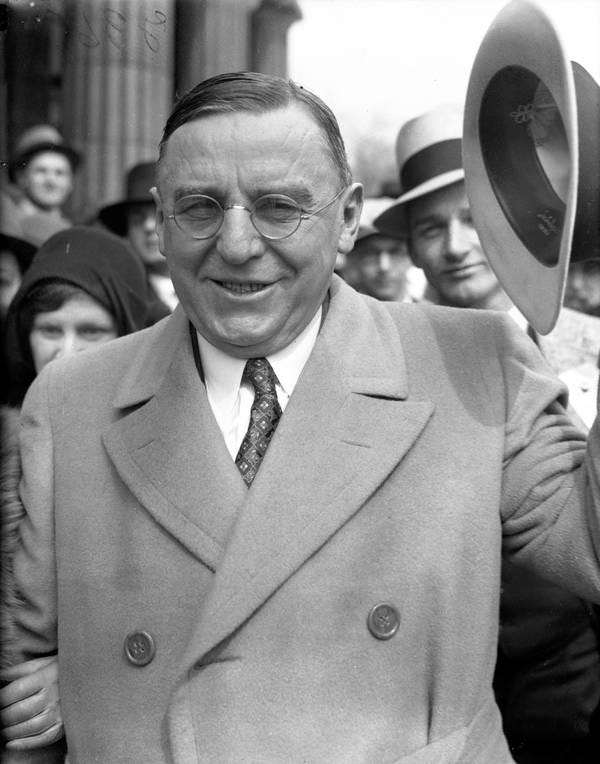



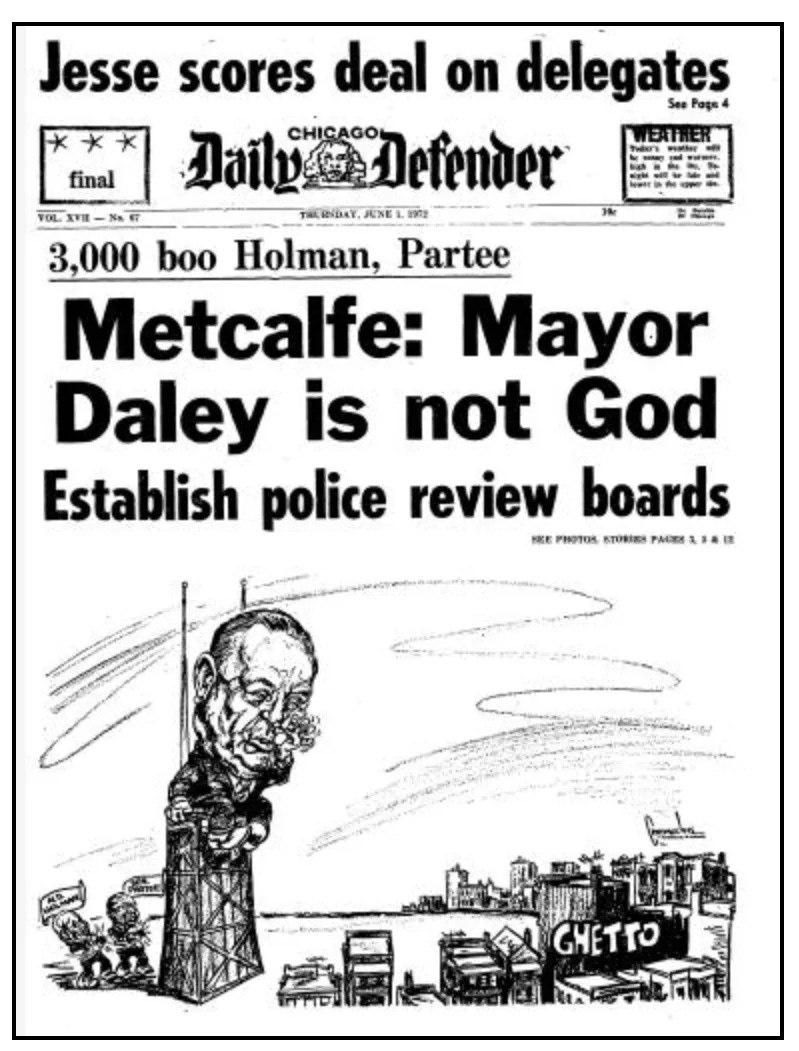


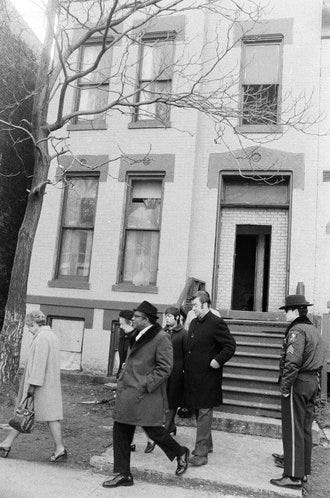




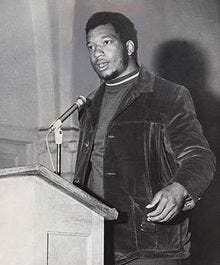
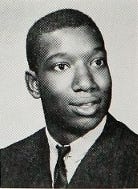
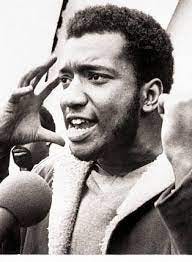
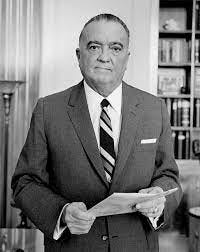
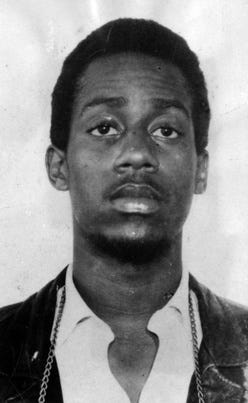











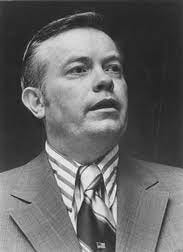


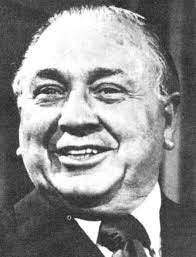







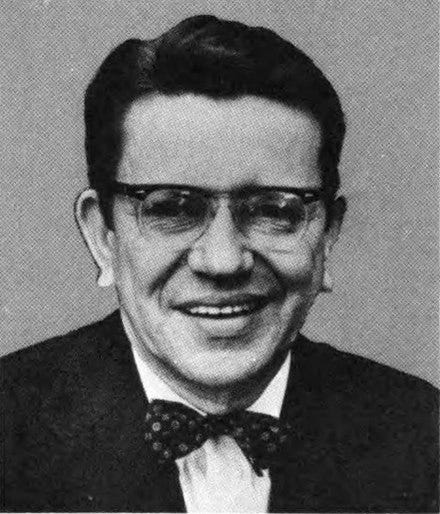
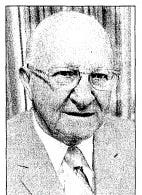




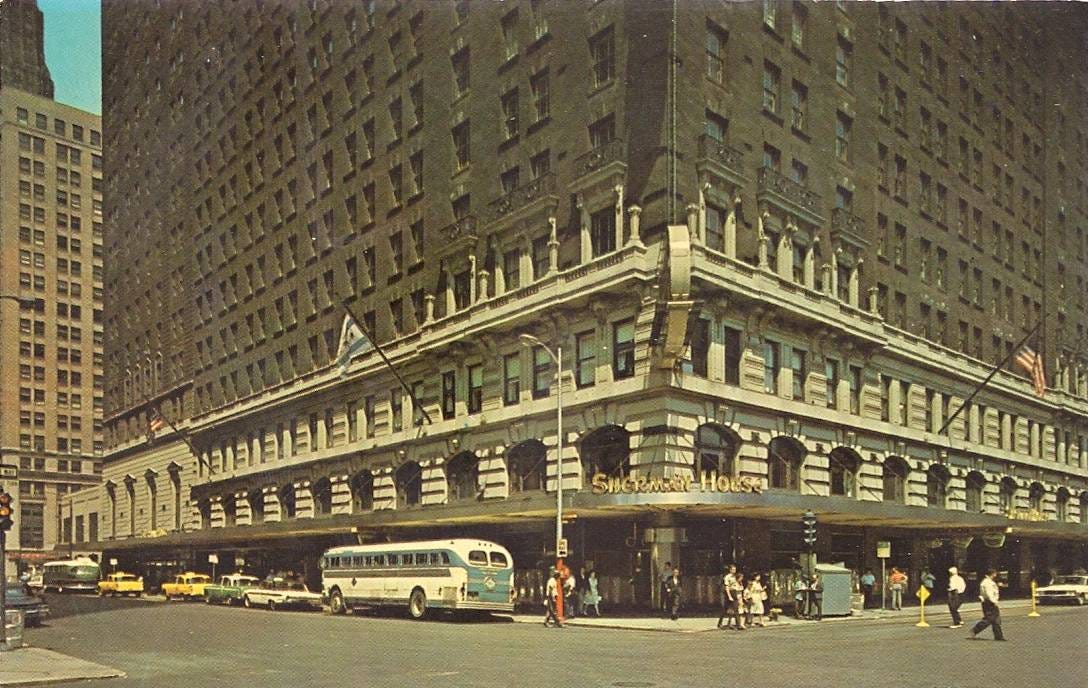
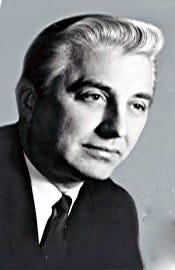

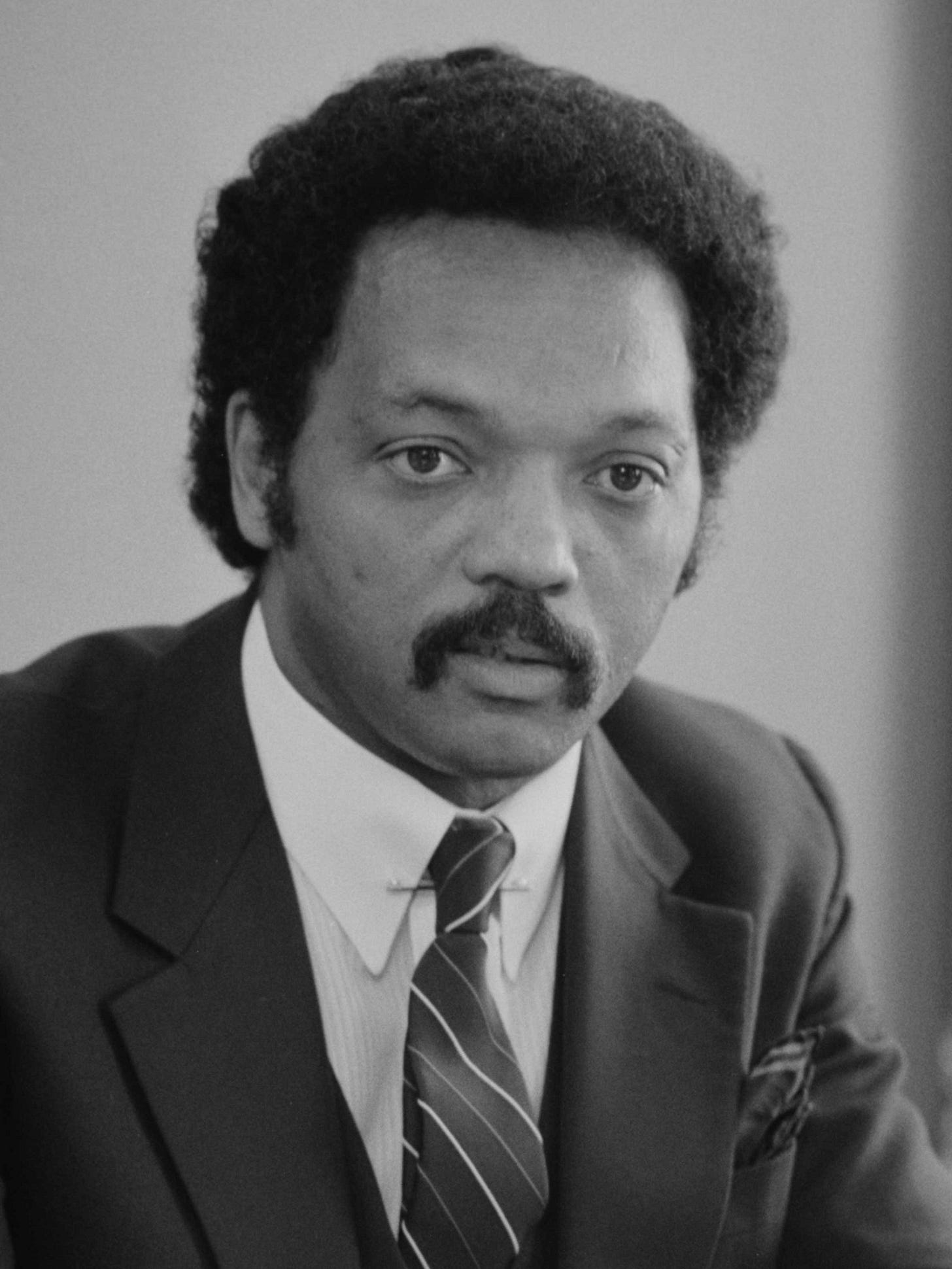
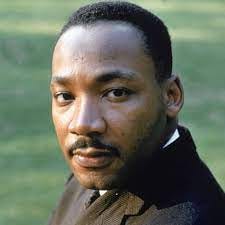
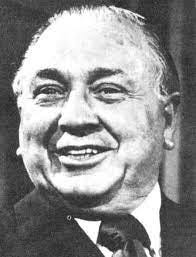




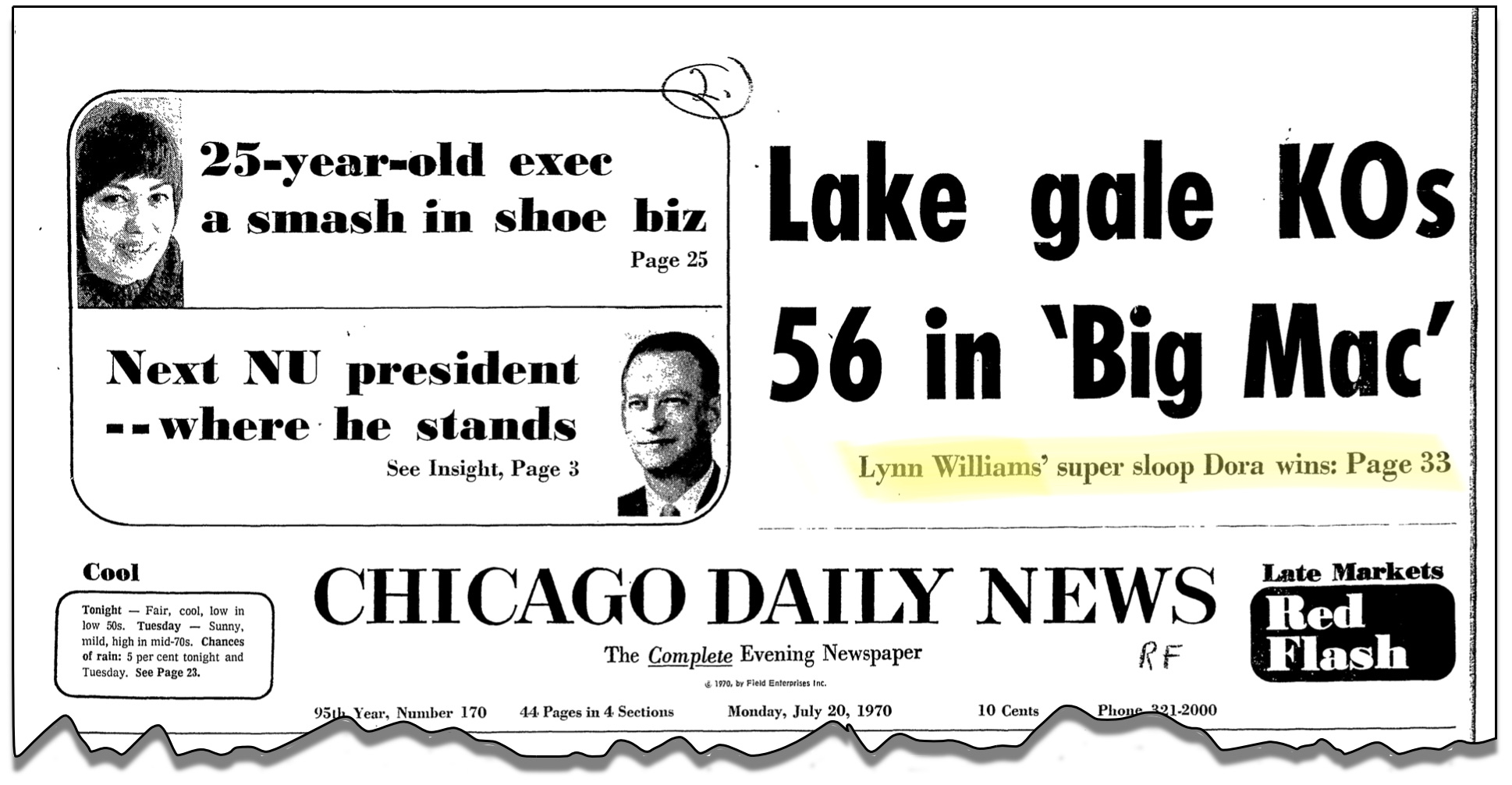







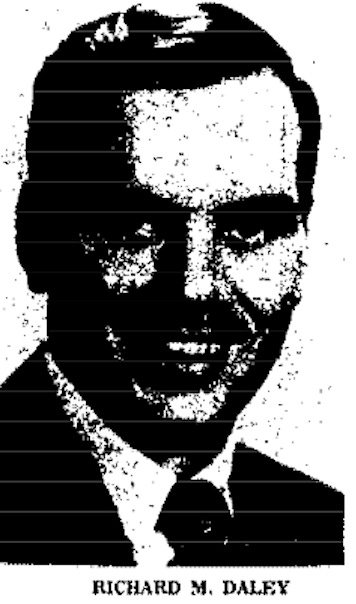


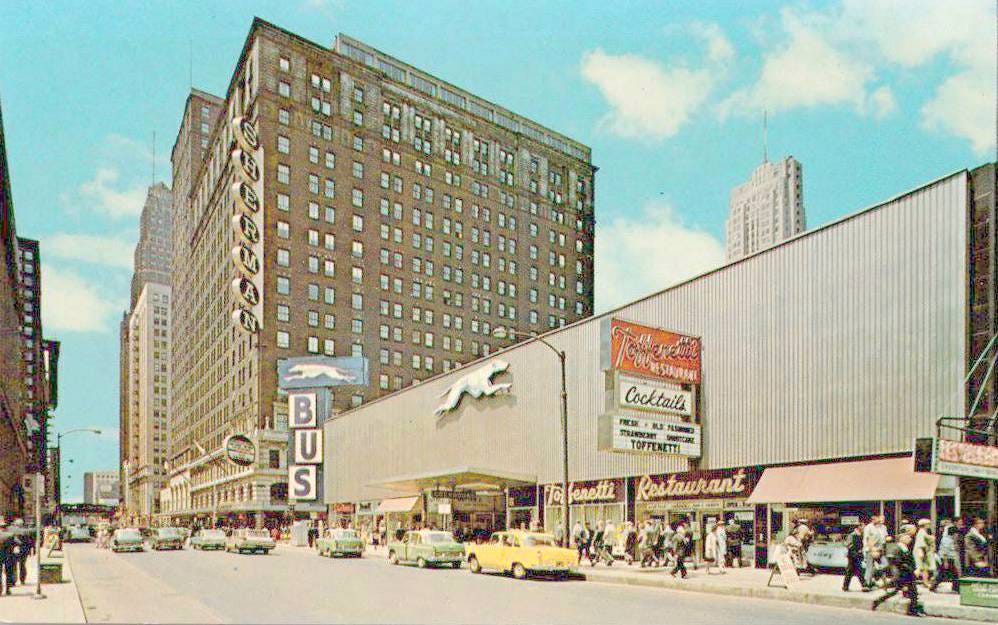


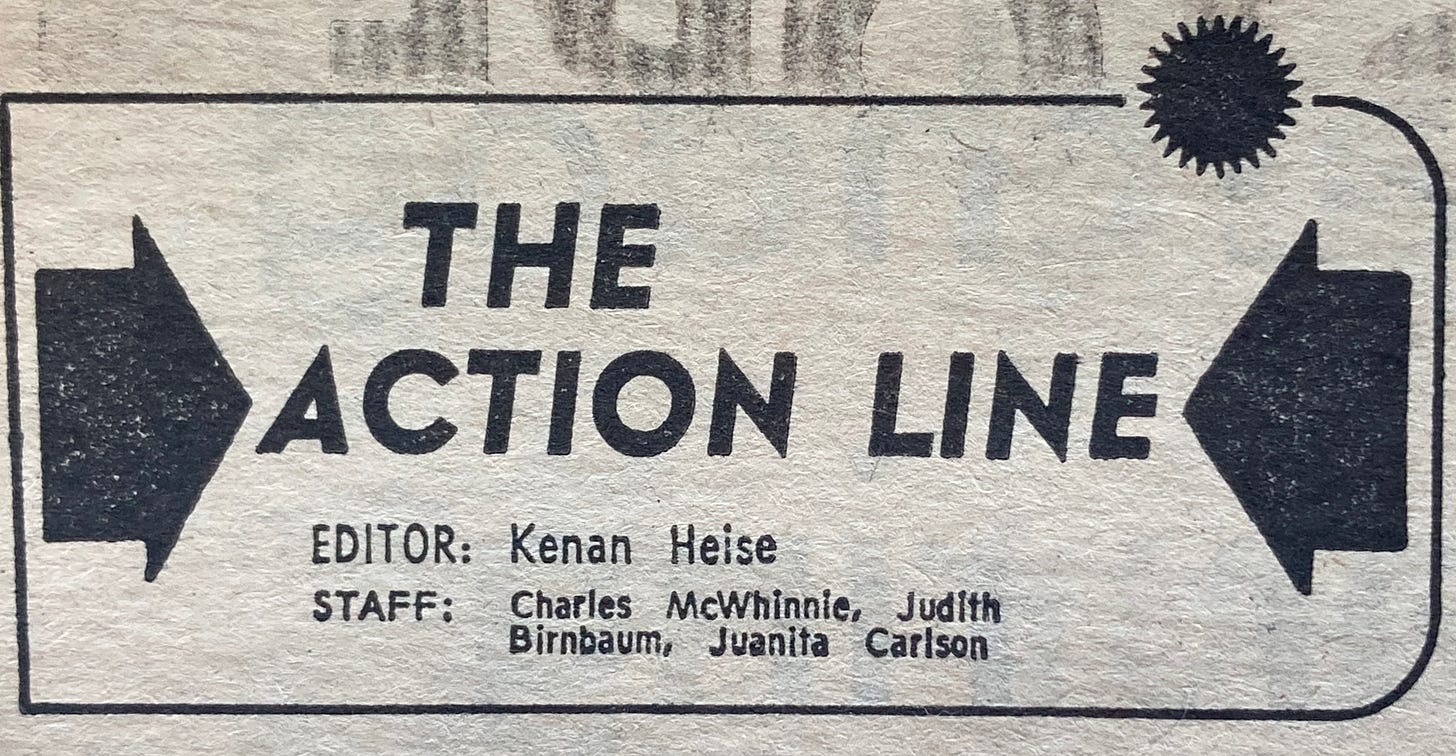
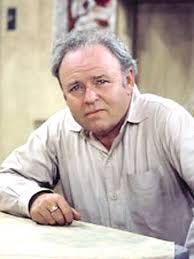







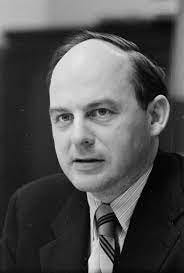
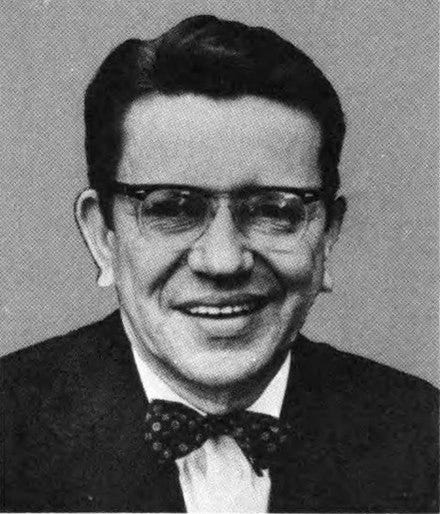


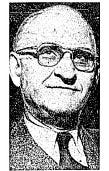





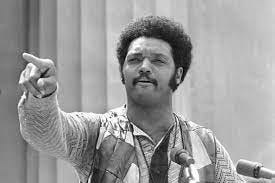
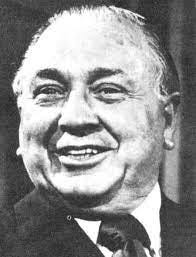

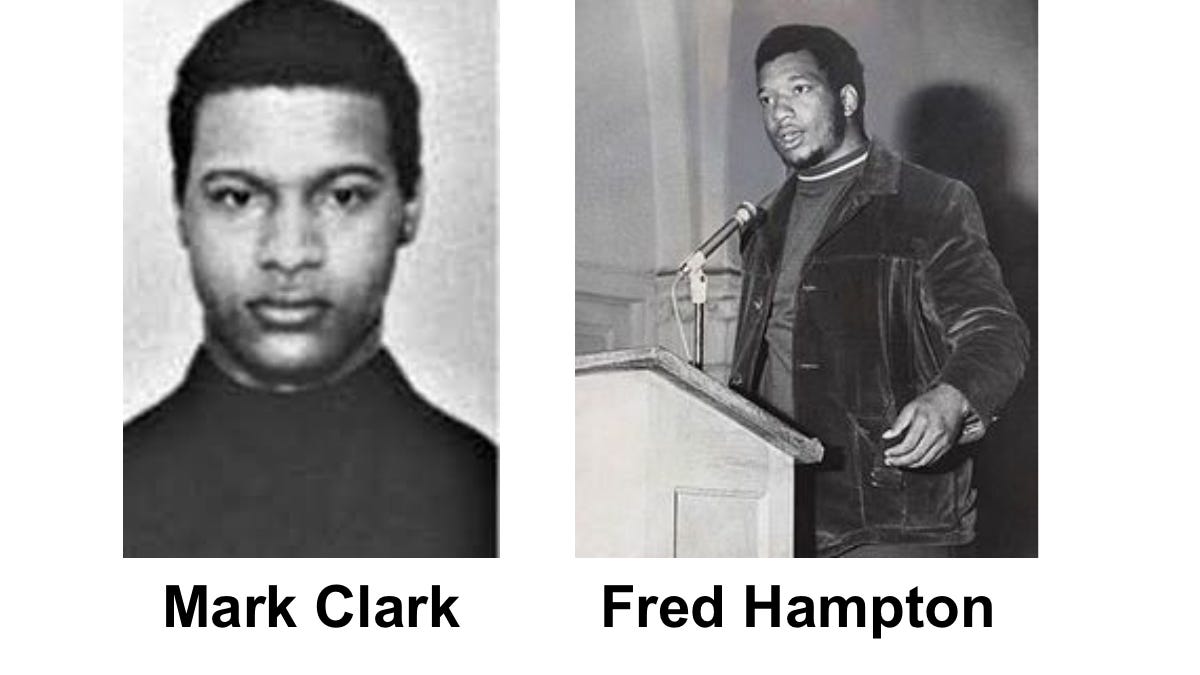





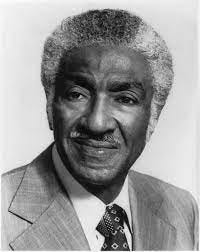
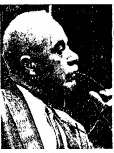


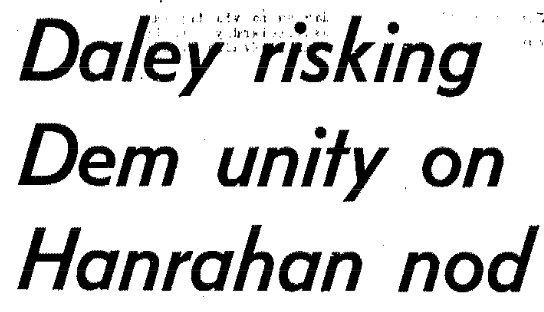
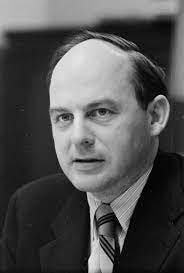







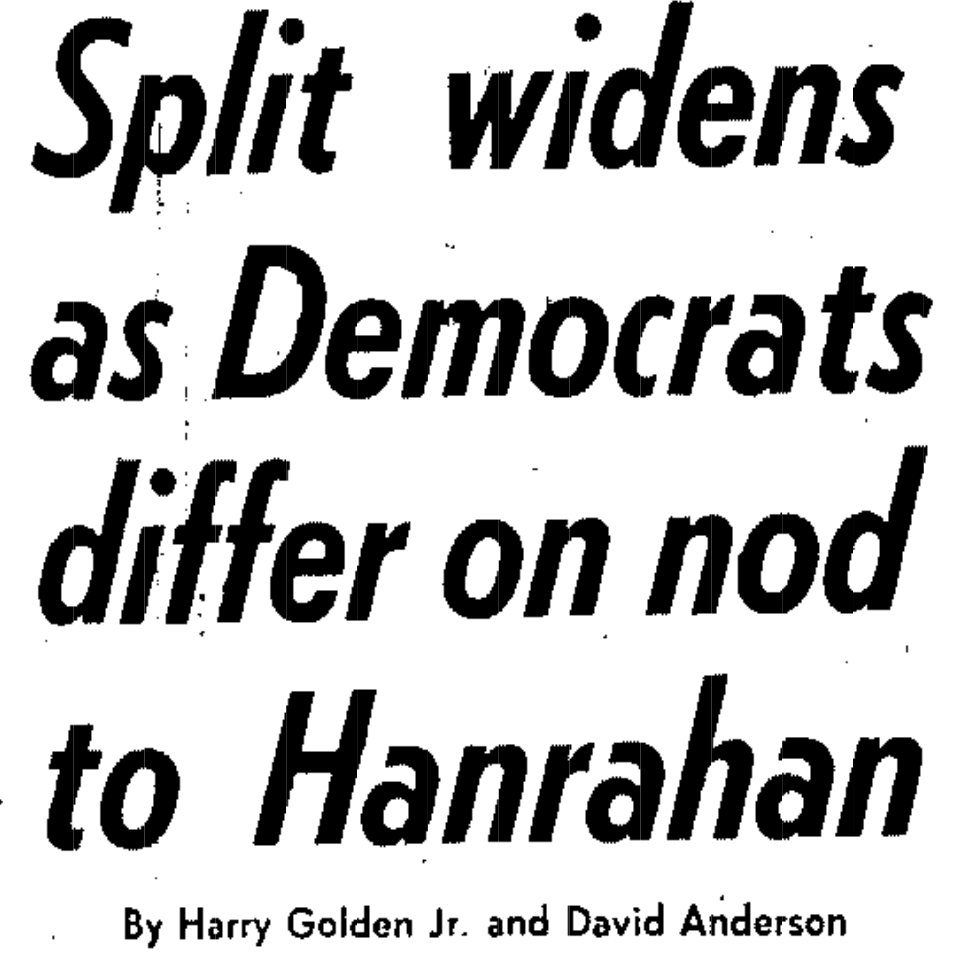
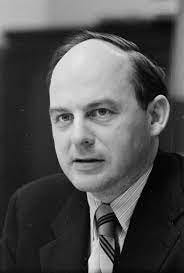

















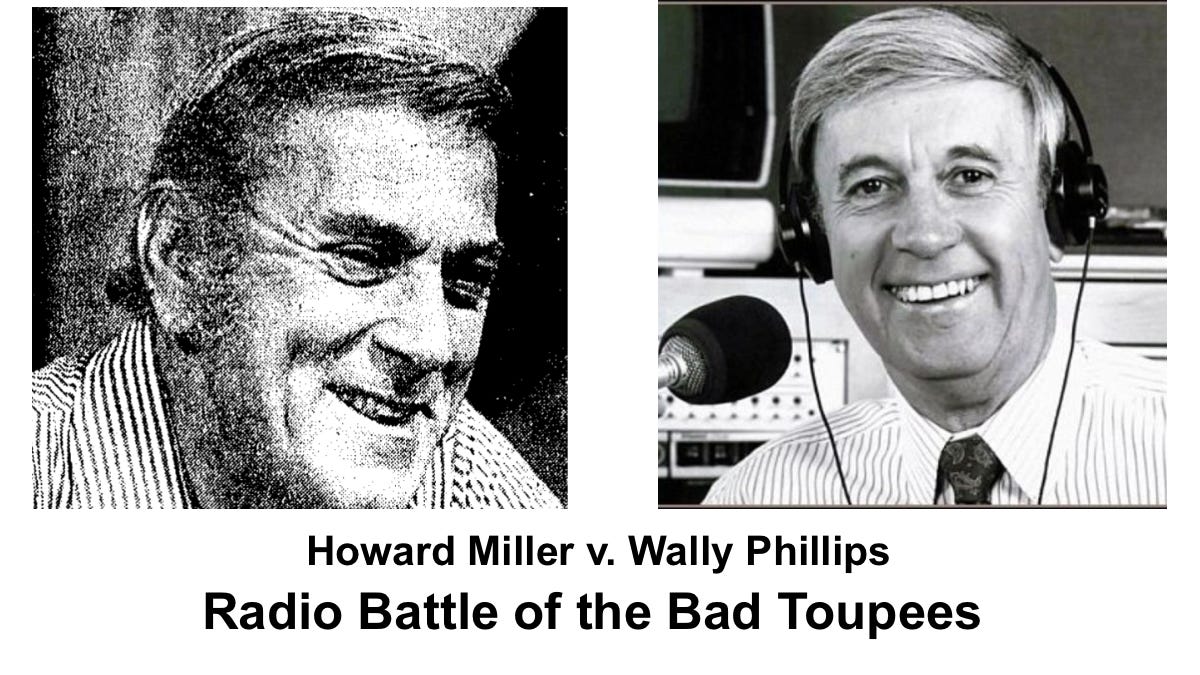










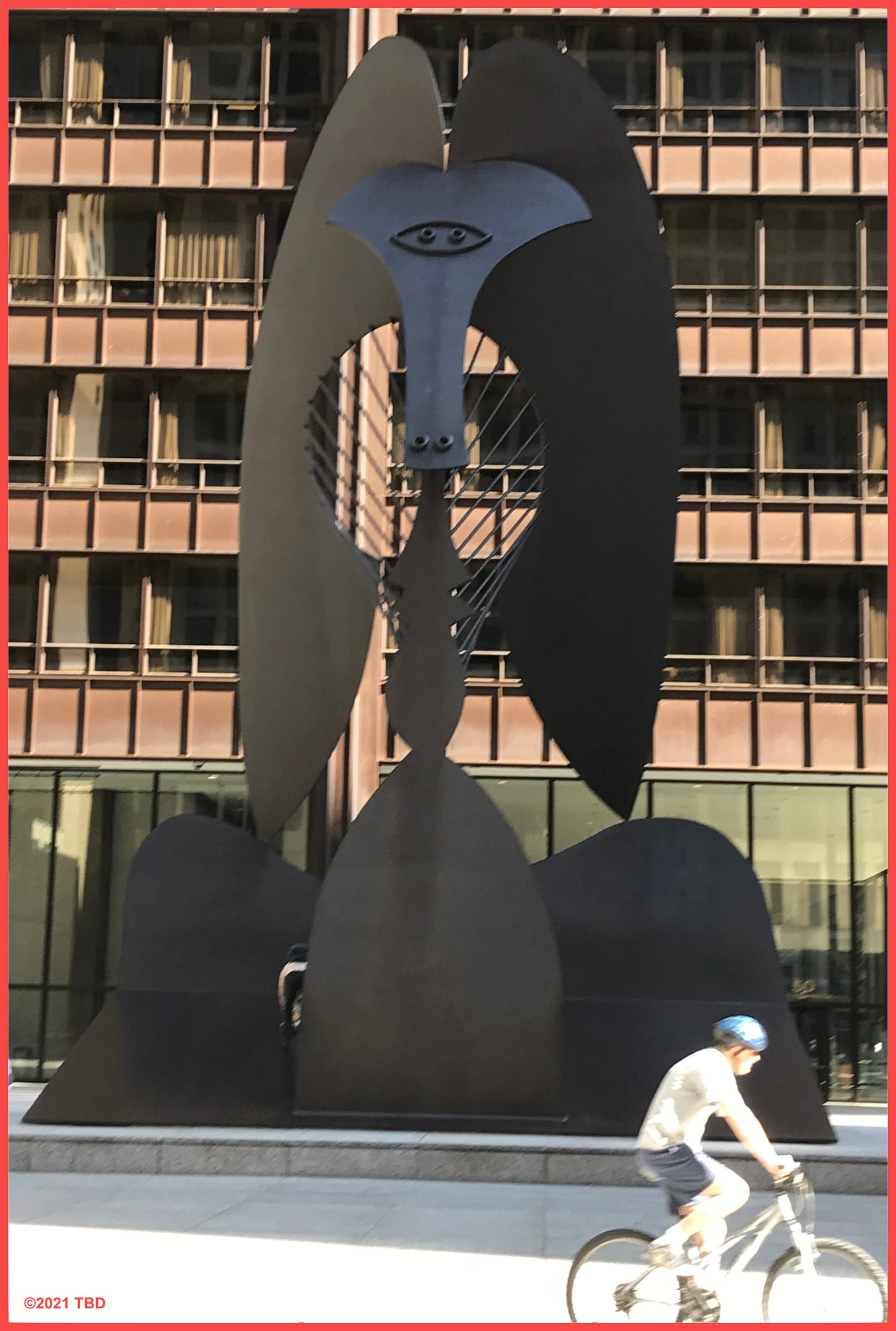





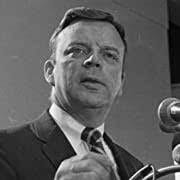



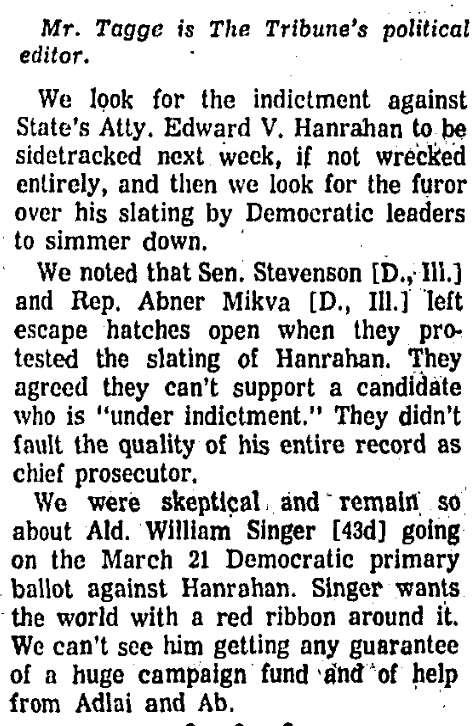




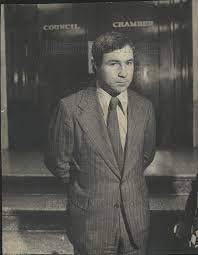






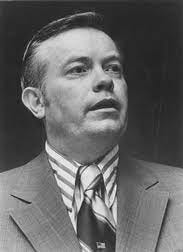




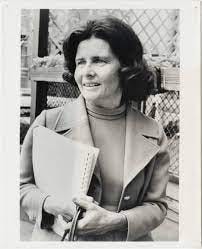

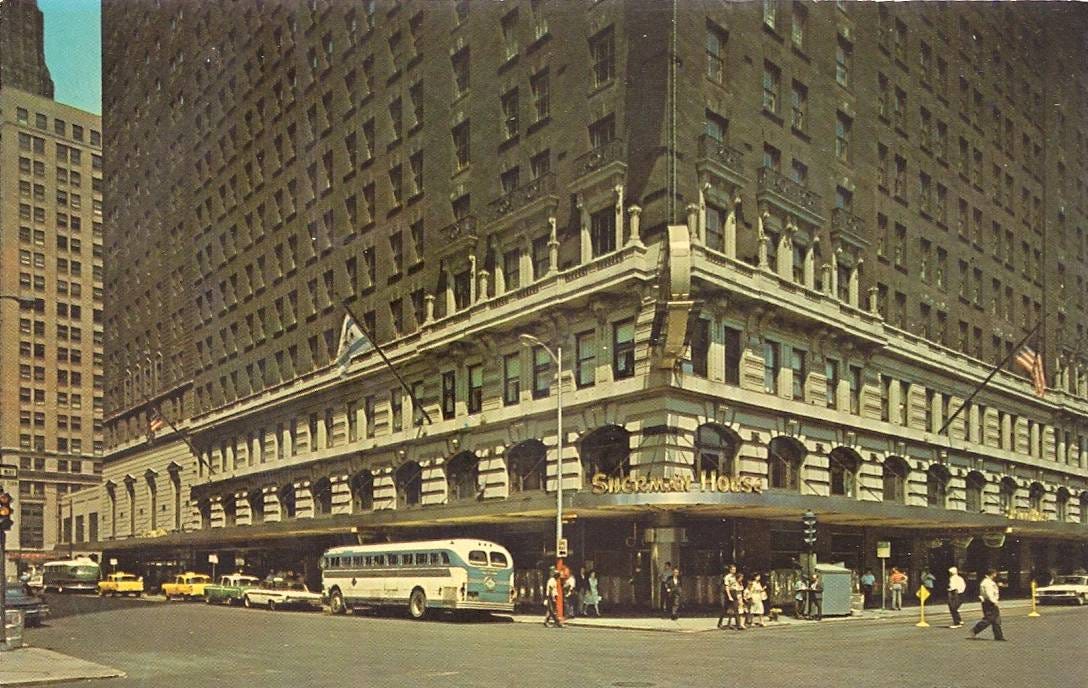
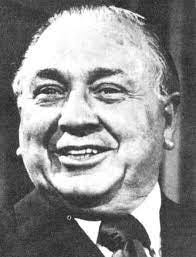



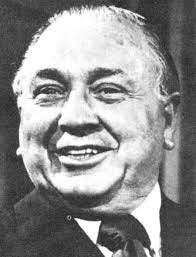











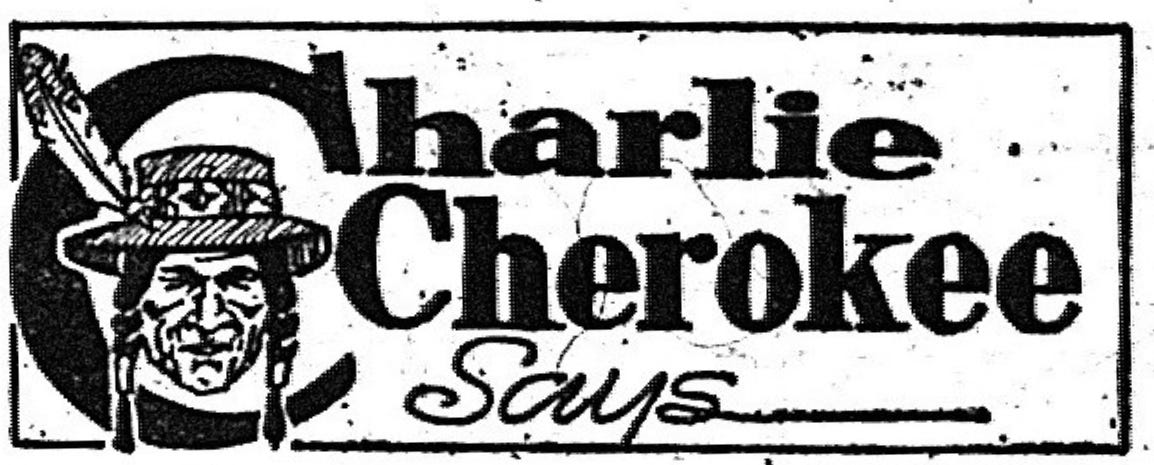





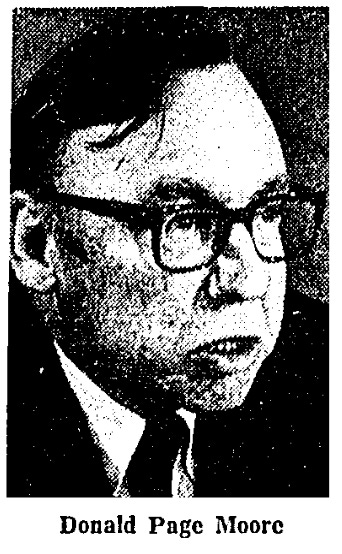
















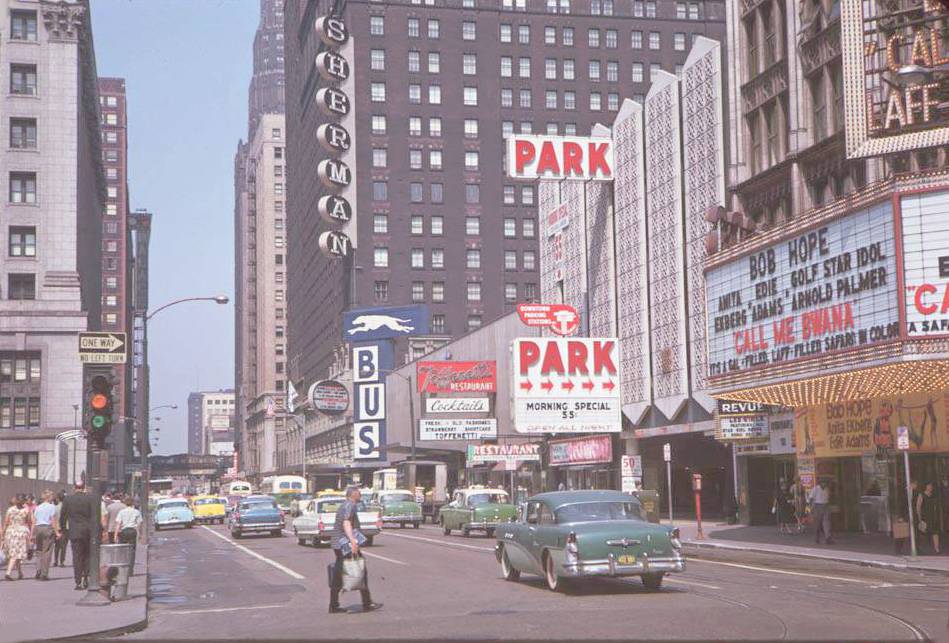





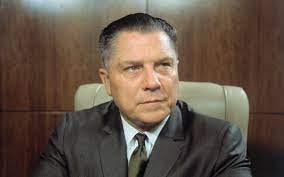
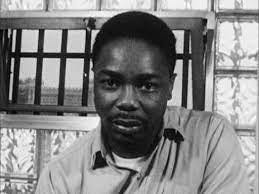







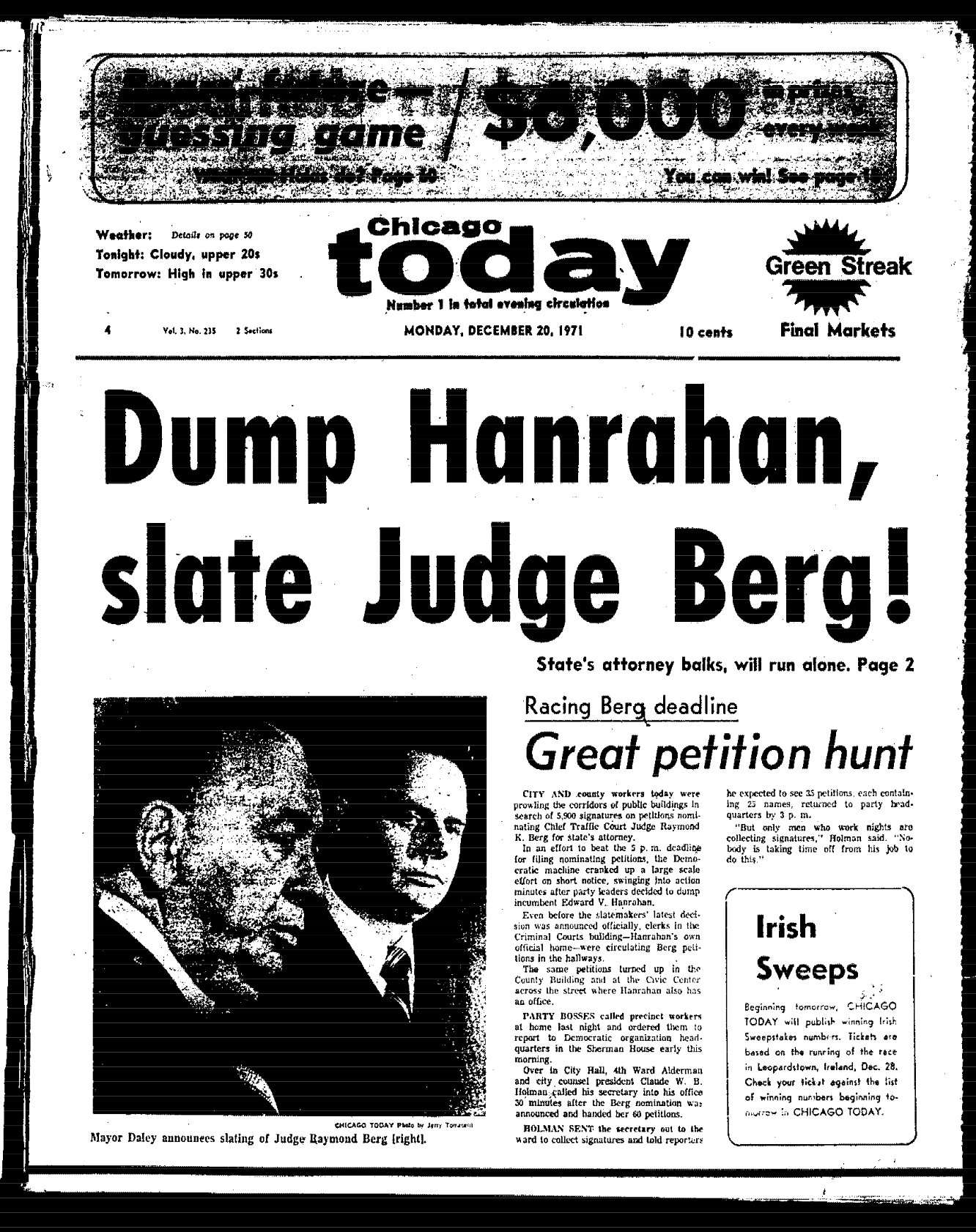

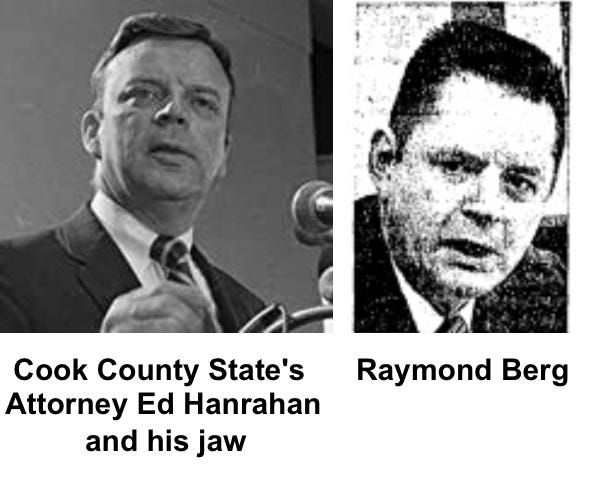




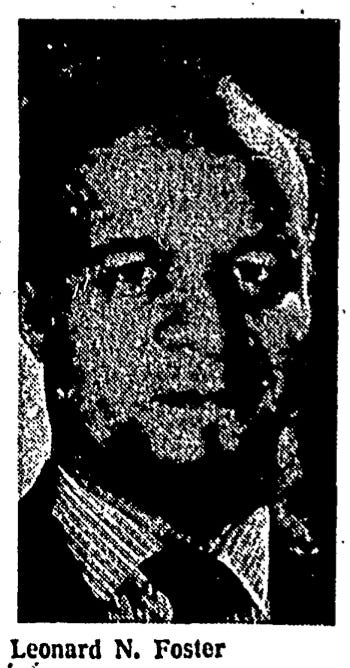


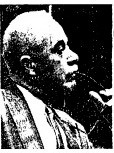




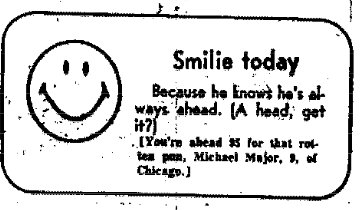


I remember forging my dad's name on the Ray Berg petition!
Careful Garry, you’re giving away the next installment! But that is incredible. Please tell us more!